120 Random Facts That Will Make You the Most Interesting Person in the Room

Sometimes, there’s no better conversation starter than a totally out-of-left-field bit of information. Maybe it’s a tiny factoid about a popular brand. Maybe it’s a little-known piece of history that flips your perspective upside-down. Maybe it’s a bit of trivia about nature or the world at large. No matter what types of facts typically strike your fancy, make sure to read these 120 totally random and 100 percent wildly interesting facts that are guaranteed to earn you some new friends.
1
You wouldn’t be able to tolerate the quietest place on Earth for more than 45 minutes.

Silence may be golden, but too much of it will drive you mad. In Minnesota’s Orfield Laboratories, there’s an anechoic chamber that is so quiet, the background noise is measured in negative decibels (-9.4 dBA, to be exact). The room’s founder, Steven Orfield, told Hearing Aid Know that not only can you “hear your heart beating and sometimes hear your lungs,” but those who have entered the space have trouble standing up due to the fact that humans use sounds to orient themselves. That means anyone who spends a little time in the room needs to be seated. But they won’t be there for long. According to Orfield, the longest anybody has been able to tolerate the extreme silence is 45 minutes.
2
The letter ‘x’ was first used to represent a kiss in 1763.

If you sign letters—or more likely, texts and emails—to those you love with an “xo,” then you’re keeping up a sweet tradition that goes back hundreds of years. Per an article in The Washington Post, the Oxford English Dictionary says that an “x” was first used to represent a kiss back in 1763 in a letter written by British naturalist Gilbert White.
3
Dogs typically go to the bathroom in alignment with the north-south axis.

We’ve known for a while that dogs, along with several other animals, can detect Earth’s magnetic fields. But it turns out, they also use it to direct their more personal habits. After watching 70 dogs do their business over a two-year period, researchers who published their work in the journal Frontiers in Zoology found that the pups preferred to go “aligned along the North-South axis under calm magnetic field conditions.” According to the study, this was the first time a measurable, predictable behavioral reaction to the magnetic field’s fluctuation has been demonstrated in mammals. It also might be why it takes your dog so long to decide where to go.
4
The entire population of Central Europe during the Stone Age could have fit on a cruise ship.

Research published in the journal PLOS ONE found that for significant spans of time during the Stone Age, there were fewer than 1,500 people living in Central Europe. And as IFL Science reports, that’s about as many people you might find on a mid-sized cruise ship today.
5
The longest TV ad in history is 14 hours long.

Created by Old Spice for a product that supposedly “lasts forever,” the commercial features actor Terry Crews, among others, and is currently airing “for an eternity” online (you can watch the abridged version here). But since that’s not exactly possible on TV, a 14-hour version was put together and aired in São Paulo, Brazil, on December 8, 2018, earning the Guinness World Record for the longest TV ad ever.
6
The gap between conversation responses typically lasts 200 milliseconds.

While that’s an average, it’s also nearly universal. In most languages—including sign language—the pause between when we speak and when the person we’re talking to takes their turn keeps to a familiar pattern. Stephen Levinson from the Max Planck Institute for Psycholinguistics told The Atlantic that the gap is “the minimum human response time to anything,” including when runners react to a starting pistol.
7
“Keep calm and carry on” is repurposed propaganda.

The popular “Keep Calm and Carry On” slogan was originally created by the British government as a form of propaganda to urge citizens to stay civil during World War II, when London frequently endured air raids from Germany. Alas, it never caught on. Years later, in the 2000s, a poster was discovered, and many companies have used it as a slogan or marketing theme for their products. Apparently, vintage sensibilities apply to modern public relations campaigns too.
8
No one knows how William Shakespeare’s name was really spelled—and neither did he.
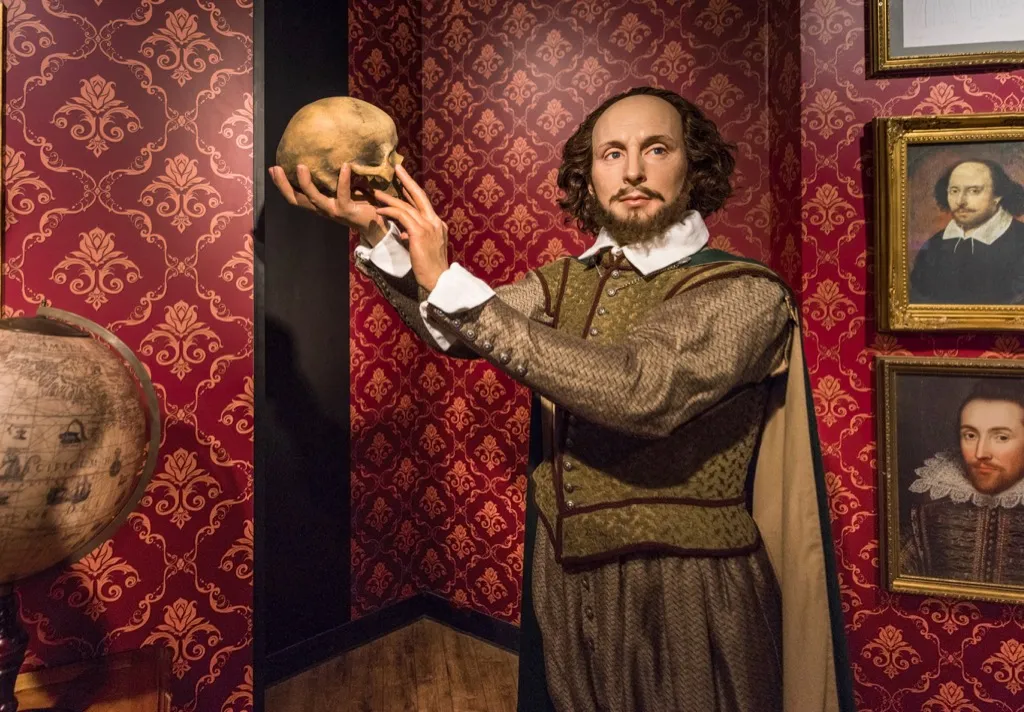
For every tidbit of info we know about William Shakespeare’s life, there are just as many that we don’t. And one thing historians aren’t too sure about is how Shakespeare’s name was actually spelled. Frankly, he didn’t seem too sure either. The Bard himself used variations of his moniker such as “Willm Shakp,” “Willm Shakspere,” and “William Shakspeare.” His contemporaries spelled it more than 80 different ways too, including “Shappere” to “Shaxberd.” It turns out, the man never used “William Shakespeare” once, despite the fact that it’s become the accepted spelling of his name.
9
Tailgating doesn’t speed up your commute.

Research out of the Massachusetts Institute of Technology from 2017 suggests that if we all keep an equal distance—similar to how birds in flocks fly—we’d get to our destinations twice as fast. The study confirmed that maintaining an equal distance between cars on either end of you gets you to your destination significantly faster than if you tailgate the car in front of you. Of course, you can’t control the car behind you, which is why we all need to get on the same page and stop tailgating.
10
“Girl” used to be the word for any young child.

If you use the word “girl” these days, you’re likely talking about little Suzy or young Sally. But way back in the 1300s, you might have been referring to little Bobby or young Billy as well. The word “gyrle” (which is where we get “girl”) was used for any child or young person, according to the Online Etymology Dictionary. For proof, Quartz points to Chaucer’s Canterbury Tales from the late 1300s, in which he wrote: “In daunger hadde he at his owene gyse / The yonge gerles of the diocise, / And knew hir conseil, and was al hir reed.” Quartz explains that “the Summoner knows all the secrets of the young people in the diocese—not just the young girls.”
11
Bananas glow blue under UV lights
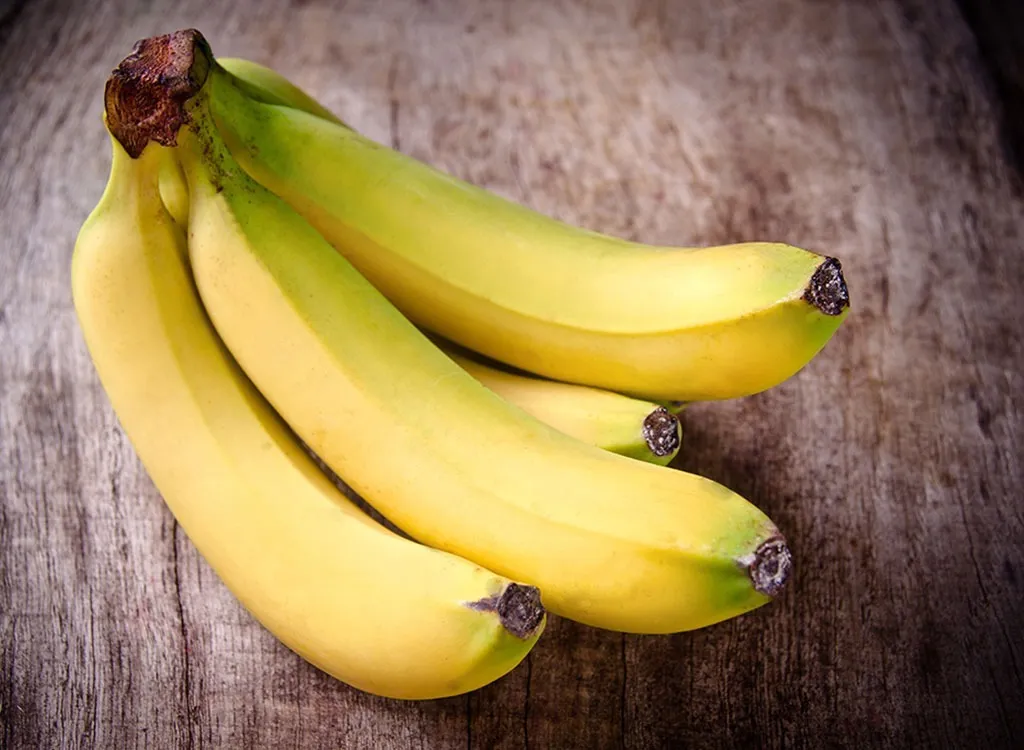
Bananas may be famously yellow, but according to a study published in the Journal of the German Chemical Society, the usually sunny-toned fruit actually glows an “intense” blue color when put under black light (or UV lights). Scientists at the University of Innsbruck in Austria and Columbia University in the U.S. found that the degradation of chlorophyll that happens in the fruit while it ripens is the cause of the funky blue glow.
12
An actor’s brain activity is different when they’re in character.

When actors get into character, they change more than just their costumes and how they talk. During a study by Canada’s McMaster University, researchers scanned performers’ brains while the actors answered questions either as themselves or in character. The results revealed that the brain activity of participants differed depending on the separate scenarios. Research author and psychologist Steven Brown wrote, “It looks like when you are acting, you are suppressing yourself; almost like the character is possessing you.”
13
China cloned an award-winning police dog.
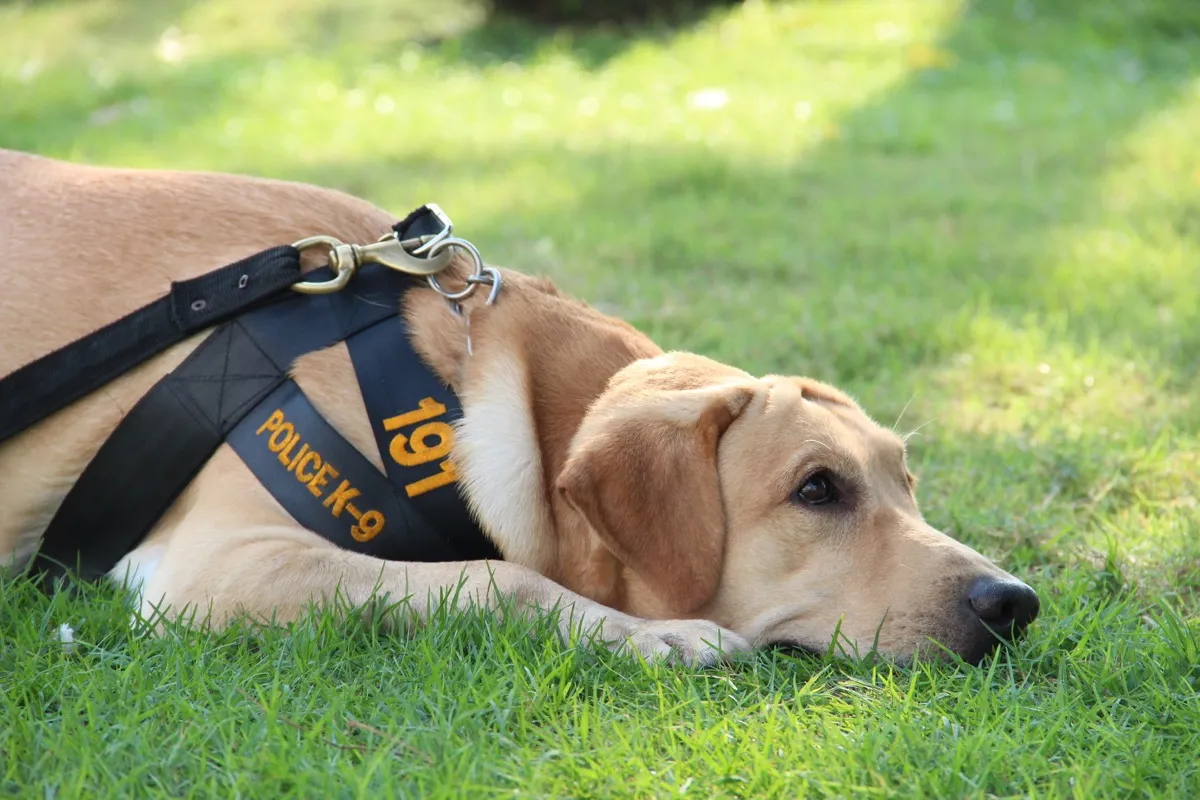
Training a puppy isn’t easy, which is why a police force in China is hoping to speed up the process by cloning an award-winning dog. The cloned puppy, named Kunxun, reported for duty in March 2019. She was cloned using the DNA from current police dog Huahuangma, a seven-year-old Kunming wolfdog from the Puer police station in Yunnan who is renowned for her detective skills. The agency hopes the cloned puppy is just as adept at solving crimes as her clone. If things go well with this pup, there could be plenty of other cloned canines joining the force.
14
The designer of the Eiffel Tower built an apartment into it.

When Gustave Eiffel designed the tower which bears his name, he added a hidden apartment on the third level of the landmark—but he never lived there, no one did. Instead, Eiffel used the special space to entertain distinguished guests such as Thomas Edison. Although it wasn’t big, the apartment was decorated with wallpaper, furnished with wooden cabinets, and even featured a grand piano. These days, you can get a peek at the unique abode through a window if you purchase a ticket for a ride up the tower.
15
The largest pizza on record was 13,580.28 square feet.

Most of us love pizza and have surely eaten our fair share over the years. But could you eat one that was the size of a warehouse? In 2012, Dovilio Nardi, Andrea Mannocchi, Marco Nardi, Matteo Nardi, and Matteo Giannotte from NIPfood at Fiera Roma, in Rome, Italy, created a massive pie that had a surface area of 1,261.65 square meters, according to Guinness World Records. They named their creation “Ottavia,” in honor of the first Roman emperor Octavian Augustus. And, yes, the pizza was gluten-free.
16
Cats can manipulate us with meows that sound like crying babies.

Research has found that our finicky feline friends know just what to do in order to get us to give them food and attention. One study published in Current Biology found that when cats used a more baby-like meow called “solicitation purring,” us humans judged it as more urgent than their regular cries. So how did the researchers know it’s manipulative? The scientists found that only cats who lived in single-person households developed this special cry—meaning it’s only something the cat acquires when it has a one-on-one relationship with its owner. And for more cat trivia, check out these 20 Amazing Facts You Never Knew About Your Cat.
17
Archaeologists discovered an “elixir of immortality” in an ancient Chinese tomb.
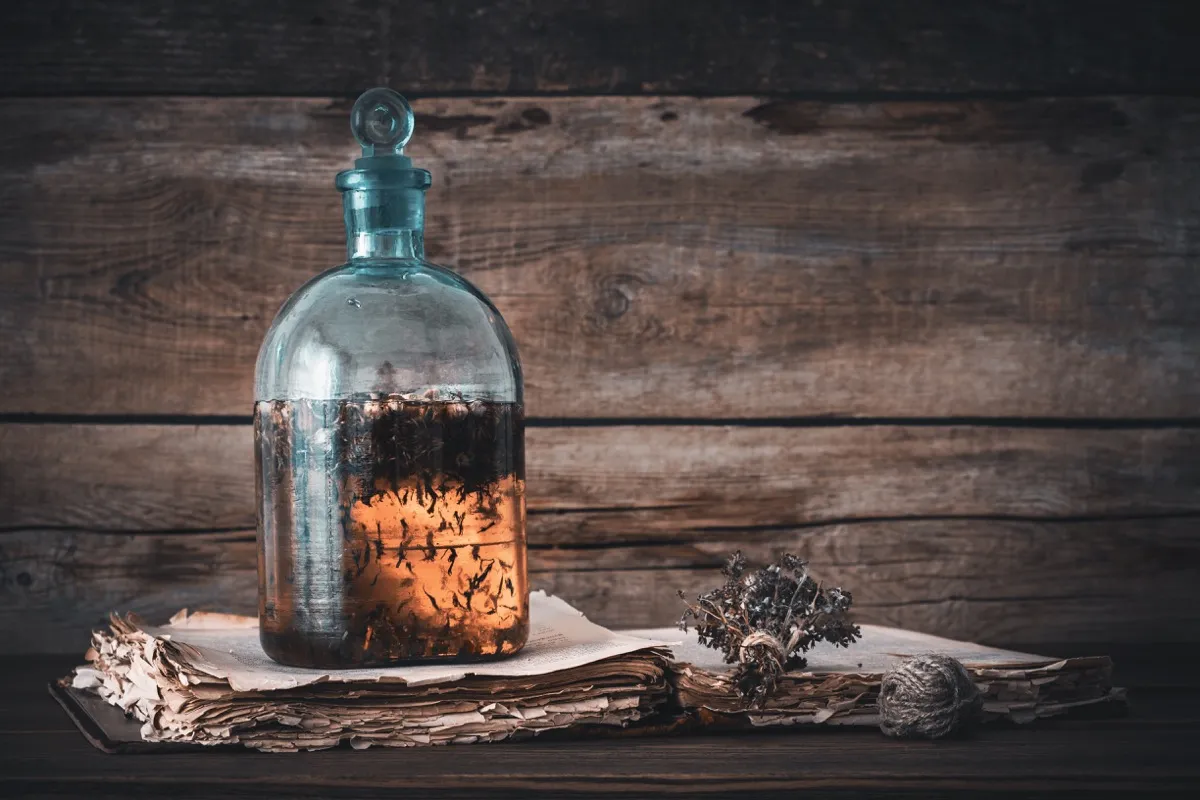
In March 2019, archaeologists in central China’s Henan Province reportedly found a 2,000-year-old bronze pot from a Western Han Dynasty that contains 3.5 liters of a liquid that was referred to in ancient Taoist literature as an “elixir of immortality.” The elixir was found to be a mixture of potassium nitrate and alunite. However, we have to assume it was less than effective—considering the fact that it was discovered, you know, in a tomb.
18
There’s a mail route in Alabama that requires a boat.

There are plenty of quirky facts about the United States that are hard to believe—and that includes this little detail about Magnolia Springs, Alabama. According to USA Today, the town is the only place in the entire country that has a year-round water-delivery mail route. The folks who live there receive their snail mail from the U.S. Postal Service via boats that have been serving the 31-mile stretch since 1915.
19
The word “SWIMS” is still “SWIMS” when turned upside down.

Go on, flip whatever device you’re reading this on upside down. Or even try writing the word out yourself. If you use all uppercase letters you’ll find the same word whether you’re looking at it right-side up or upside down.
20
Barbie’s full name is Barbara Millicent Roberts
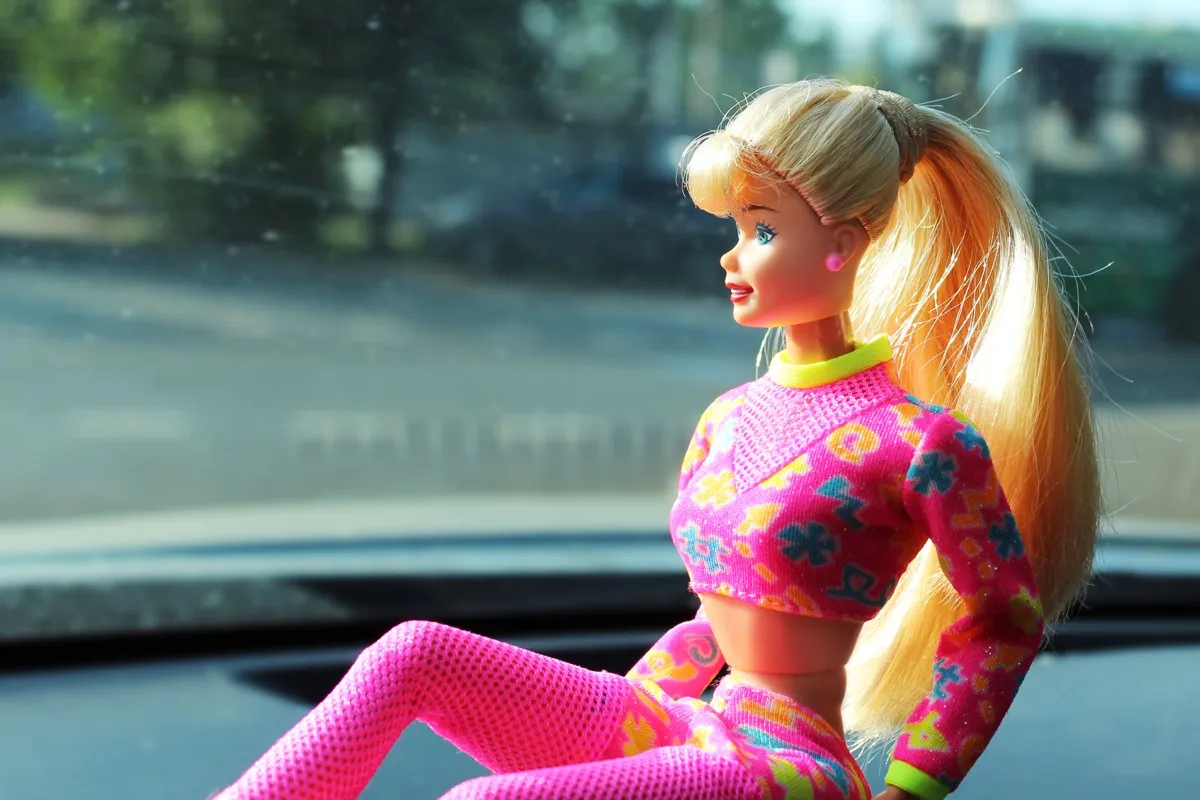
You may know the iconic doll by her nickname, Barbie, but when the famous Mattel, Inc. toy was first introduced back in March 1959, she was given the full moniker of Barbara Millicent Roberts. Her first name is in honor of creator Ruth Handler’s daughter, Barbara, who inspired her mother to design an adult-like doll while playing with paper versions and giving them grown-up personalities, according to Barbie Media.
21
A change in our diets may have changed the way humans speak.

Various factors alter the evolution of language and that apparently includes what we eat. A study published in Science explains that linguists at the University of Zurich believe that the rise of agriculture may have changed how we speak. By introducing softer foods into our diet, human teeth and jaws were affected in a different way than if we had solely been eating tougher foods like meat. Because of this, we possibly started using softer sounds like “f” and “v” that might not have been so prevalent otherwise.
22
Before alarm clocks, there were alarm humans.

The job of knocker upper (yes, that’s really what they were called) originated in Britain during the Industrial Revolution, when people needed to wake up and get to work, but alarm clocks were not accessible to the general population. A knocker upper’s job was to literally take a wooden stick and knock on the door to make sure you’d wake up—just two to four knocks, and then they were on their way, no sticking around. Some even used pea-shooters to shoot dry peas at tenants on higher floors, in order to wake people up on top floors if stairs were not accessible.
23
Mice in Central America can sing almost 100 notes.
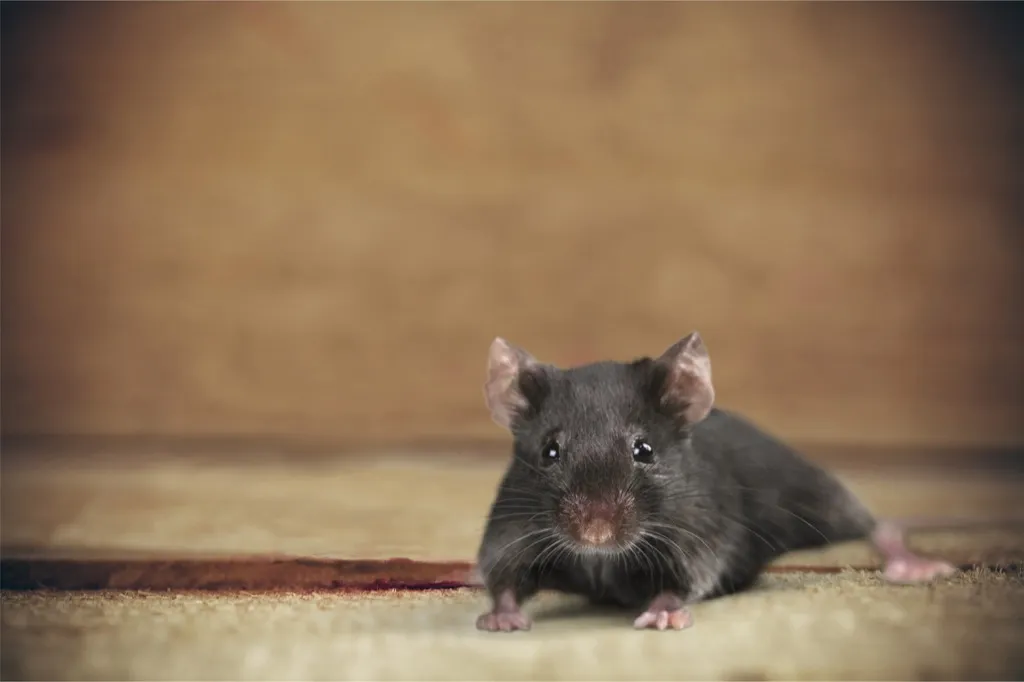
If you thought fictional Disney mice were the only critters that can carry a tune, then you’ll be surprised to find out about the Scotinomys teguina, or Alston’s singing mouse, from Central America, which are real-life musically inclined rodents. The tiny creatures communicate in sing-song conversations in which they reply to each other using around 100 audible notes. Plus, their ability to communicate with one another makes them the ideal laboratory mice for studying communicative difficulties in humans.
24
Omphalophobia is the fear of belly buttons.

When you think about the fact that they’re responsible for providing us nourishment in the womb, belly buttons are pretty incredible. But not everyone is amazed by the tiny dots in the middle of our bodies. In fact, some people are downright freaked out by them. And if that’s you, you now know the official term for it: omphalophobia
25
The McDonald’s in Sedona, Arizona, is the only one in the world with turquoise arches instead of golden ones.
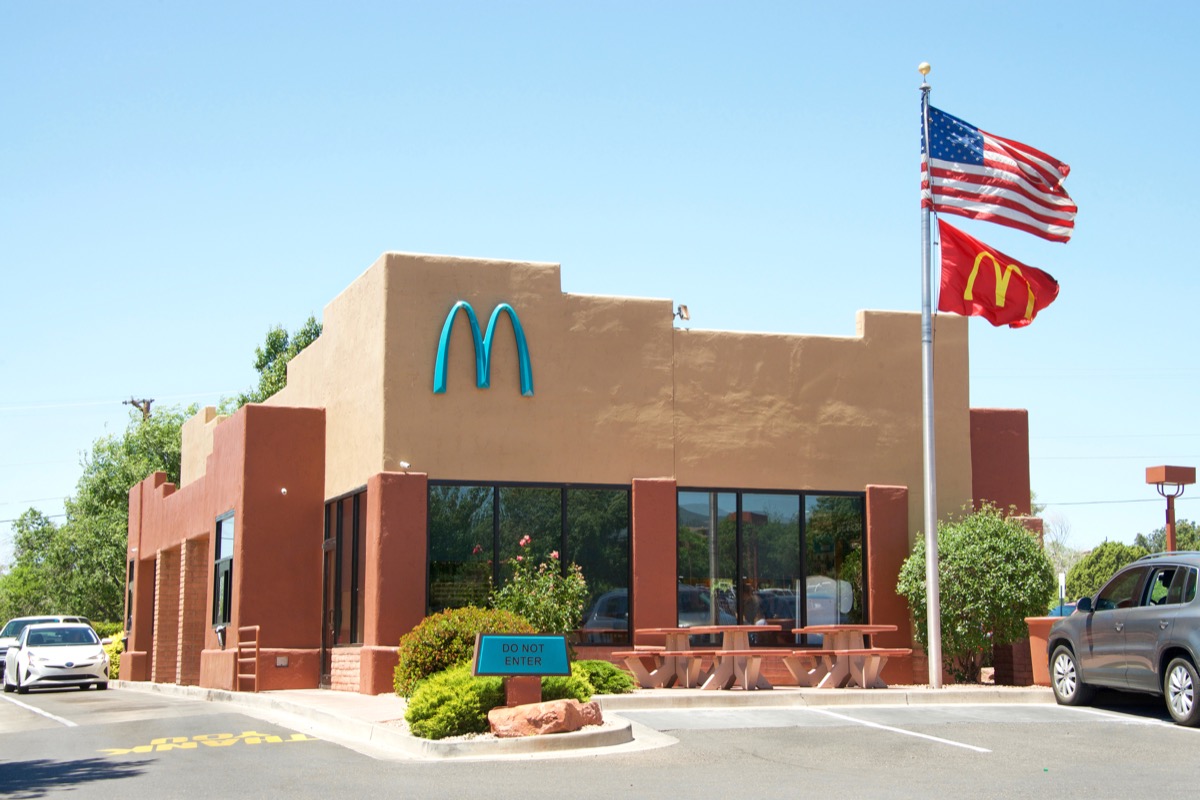
McDonald’s golden arches are just as famous as their Big Mac and chicken nuggets. And you can spot the iconic sunny-colored symbol pretty much anywhere in the world—except for one location in Sedona, Arizona. The one restaurant switched things up with turquoise arches after government officials deemed the yellow ones to be contrasting too much with the area’s scenic red rock.
26
You could fit Rhode Island into Alaska 425 times

America’s 50 states come in all shapes and sizes, which means that some are bigger than others. Actually, some are a lot bigger than others. For instance, Alaska is not only one-fifth the size of the lower 48 states and larger than Texas, California, and Montana combined, but you could also fit Rhode Island into Alaska a whopping 425 times, according to the state’s official state website.
27
Wimbledon tennis balls are all stored at perfect room temperature.

All Wimbledon tennis balls are kept at 68 degrees Fahrenheit because the temperature of the tennis ball affects how it bounces, and all tennis balls must be kept as consistent as possible for competitive reasons. When the ball is warmer, gas molecules inside the ball expand, which cause it to bounce higher. When it’s cooler, the molecules shrink, and the ball bounces lower. To make sure the best tennis balls are used and the temperature is kept stable, Wimbledon goes through more than 50,000 tennis balls per year!
28
Humans once ate giant sloths.

It’s hard to imagine sloths as anything other than the incredibly adorable, super-slow critters that we know and love today. But way back when, they were also massive—and a massive meal for humans, according to a study published in Science Advances. The study of recently found remains suggests one of the ancient animals had been butchered using human tools sometime during the Ice Age.
29
Every day we take about 22,000 breaths.

According to the Lung Foundation Australia, the average person breathes around 22,000 times each day. However, women and children have a higher breathing rate, which means that they breathe more times than men.
30
The CIA headquarters has its own Starbucks, but baristas don’t write names on the cups.

Starbucks baristas are infamous for messing up customers’ names when passing along orders, but that’s not a problem for patrons of the Starbucks at CIA headquarters. Due to security issues, baristas hold off on adding names to cups. It wasn’t always like this at the location, but an unidentified supervisor speaking to The Washington Post revealed that despite the fact that those wishing to be covert “could use the alias ‘Polly-O string cheese’ for all” they cared, it just wasn’t working out. “Giving any name at all was making people—you know, the undercover agents—feel very uncomfortable. It just didn’t work for this location,” they said.
31
When the FIFA World Cup trophy was stolen in 1966, it was found by a dog named Pickles.

The Jules Rimet Trophy was the original prize awarded to the winners of the FIFA World Cup each year, a symbol of athletic excellence. But on March 20, 1966, while enjoying a bit of a tour, the trophy was stolen from the Methodist Central Hall in Westminster, despite the fact that five guards were assigned to protect it. The theft was a huge story and plenty of false leads popped up—as did an eventual ransom note.
However, in the end, it was a four-year-old mixed breed collie named Pickles who noticed the stolen item under a hedge while out on a walk with his owner, Dave Corbett, according to the BBC. Corbett recalled, “Pickles was running around over by my neighbor’s car. As I was putting the lead on I noticed this package laying there, wrapped just in newspaper but very tightly bound with string. I tore a bit off the bottom and there was a blank shield, then there were the words Brazil, West Germany, and Uruguay printed. I tore off the other end and it was a lady holding a very shallow dish above her head. I’d seen the pictures of the World Cup in the papers and on TV so my heart started thumping.”
32
The word “sarcasm” can be traced back to a word meaning “to tear flesh like a dog.”

We’ve heard of “biting sarcasm” and when you’re hit with a rather vicious remark, it can certainly feel like it draws blood. That’s why it seems fitting that the origin of the word “sarcasm” is rather ferocious. According to Merriam-Webster, “sarcasm” can be traced back to the Greek verb “sarkazein,” which initially meant “to tear flesh like a dog.” Ouch!
33
LEGO has an underground vault with every set ever made.

Lego offers seemingly endless sets of their toys based on everything from historical events to blockbuster movie franchises. But there’s one place that holds every single set ever made. In 2008, Gizmodo got a peek at Lego’s Memory Lane vault, which reportedly contains 4,720 sets, some dating back to the 1950s.
34
Sherlock Holmes author Sir Arthur Conan Doyle played as a soccer goalkeeper under a pseudonym.
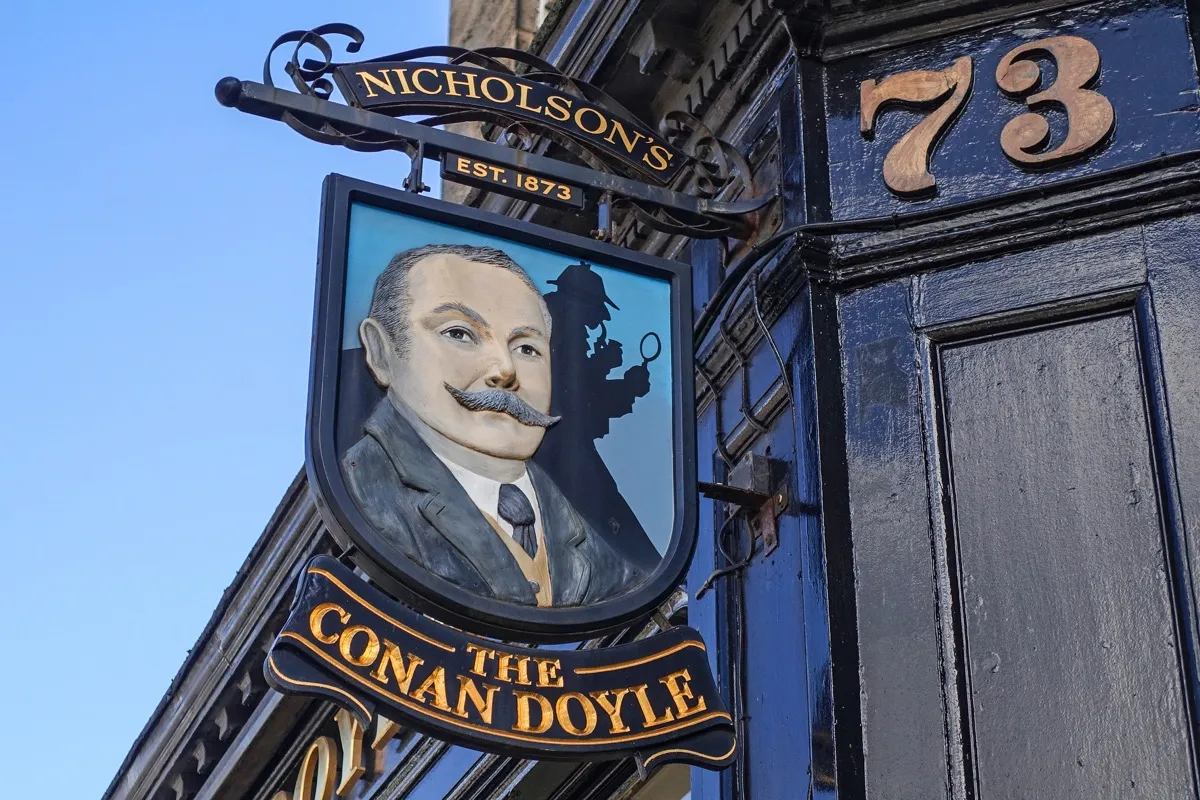
Anyone who loves a good mystery movie is likely to recognize the name Sir Arthur Conan Doyle—and that was just as true in the author’s own lifetime from 1859 to 1930. But no one would be as familiar with AC Smith, which is the pseudonym Doyle used while playing as a goalkeeper for the Portsmouth Association Football Club while living in Southsea, England.
35
The most tosses of a pancake in one minute is 140.
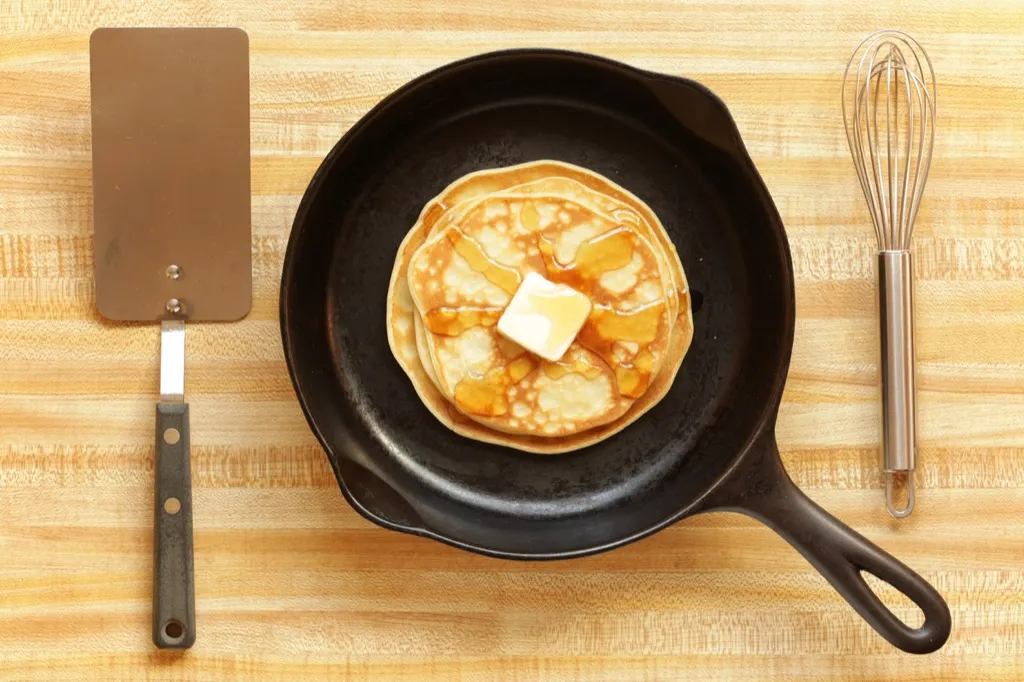
Australia’s Brad Jolly set the Guinness World Record for the most tosses of a pancake in 2012 with 140 flips in just one minute. While demonstrating his super speedy technique, he explained, “It’s all in the wrist.”
36
The Milky Way weighs about 1.5 trillion solar masses.

We obviously can’t pop our galaxy onto a scale to learn how many pounds it weighs, but by using data from NASA’s Hubble Space Telescope and the European Space Agency’s Gaia satellite, scientists have calculated that the Milky Way weighs around 1.5 trillion solar masses (1 solar mass equals the weight of our sun). Part of that bulk comes from the 200 billion stars in the area as well as a 4-million-solar-mass black hole and surrounding dark matter.
37
Bloodcurdling horror movies really can curdle your blood.

Whether you’re into old-school outrageously freaky films or newer spine-tingling spooky stories, you’re surely aware of the fact that scary plots can make you plotz. But according to a 2015 study published in The BMJ, bloodcurdling horror movies can do just that: curdle your blood. The scientists found that when we watch a terrifying tale, our bodies experience an increase in blood coagulant factor VIII, which is a clotting protein. Too much of the protein and our blood will clot or, in essence, curdle.
38
The smell of fresh-cut grass is a signal of distress.

Scientifically, that amazing fragrance of fresh-cut grass is the release of enzymes as a result of stress—similar to when humans sweat when stressed. When grass is cut, “the plant signals the environment via the emission of volatile organic compounds, which are recognized as a feeding queue for parasitic wasps to come to the plant that is being eaten and lay eggs in the pest insect,” says Michael Kolomiets, Texas A&M AgriLife Research plant pathologist.
39
J.K. Rowling invented quidditch after a fight with her boyfriend
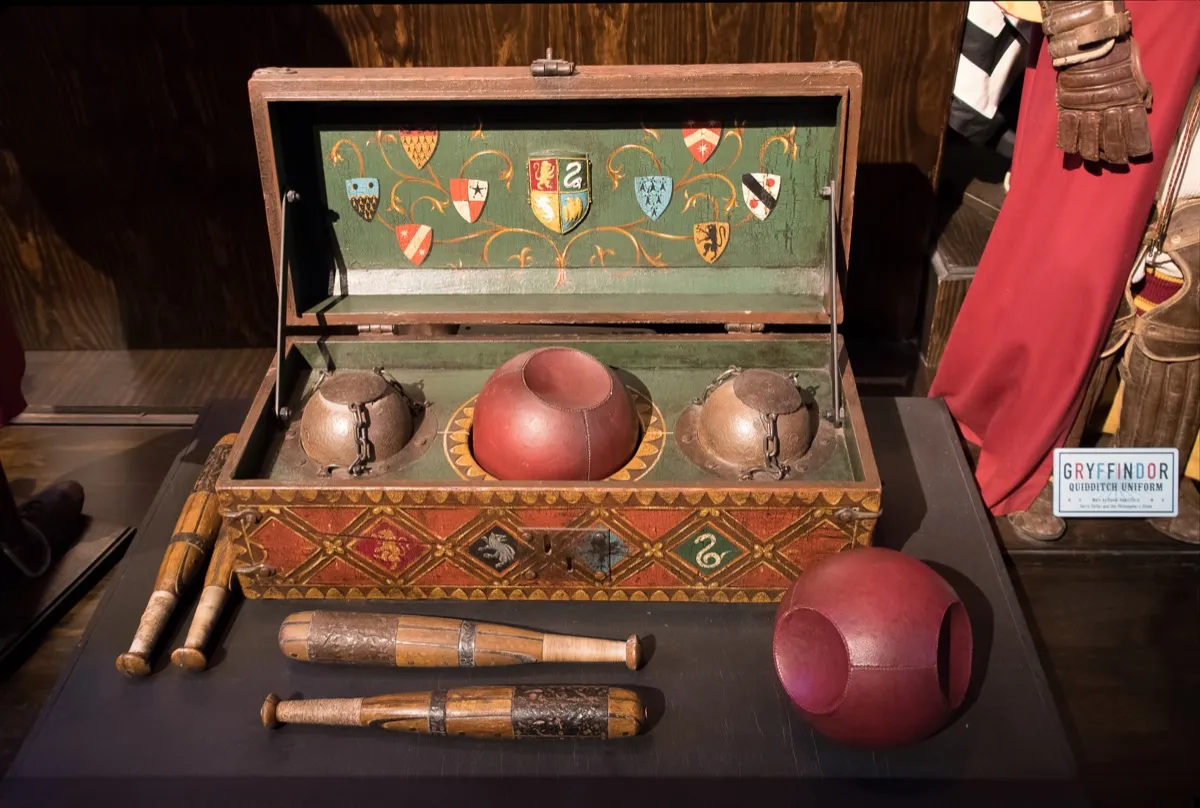
Inspiration can strike at the strangest times. And it’s a pretty safe bet that Harry Potter author J.K. Rowling didn’t expect to have one of her most famous ideas after a disagreement. But that’s exactly what happened, according to the writer herself. “[Quidditch] was invented in a small hotel in Manchester after a row with my then boyfriend. I had been pondering the things that hold a society together, cause it to congregate and signify its particular character and knew I needed a sport,” she wrote in an annotated first edition of the first book in the famous series, which contained insights into how she wrote it.
40
Scientists study ancient fecal matter to track population change.

Scientists can learn a lot from what ancient citizens leave behind and that includes their droppings. Cahokia—an ancient city less than 10 miles outside of what we now know as St. Louis, Missouri—had a sizable population by the year 600 which peaked by 1100, making it “the largest pre-Columbian settlement north of Mexico.” The area has provided plenty of clues to how Cahokia residents used to live. But beyond knick knacks and any possible recorded history left behind, archaeologists at the University of California, Berkeley, are also finding information regarding the ancient population in the layers of waste found in lake sediments.
41
Bangladesh has six seasons.

Depending on where you live, you experience different kinds of seasons. Those in the northern U.S. know what it’s like to adapt to four distinct seasons each year, while those living in the southern states are more familiar with various levels of warm, hot, and sizzling. And the range of seasons varies even more around the world, including in Bangladesh where there are six official seasons: summer (grisma, in Bengali), monsoon (barsa), autumn (sharat), late autumn (Hemanta), winter (shit), and spring (basanta).
42
“Huh?” is considered a universal word for humans.

It’s seemingly impossible to be fluent in every language used around the world. However, it turns out that you might be able to get by with at least one word (or sound?) no matter where you are on the planet. Research from a 2014 study published in PLOS ONE suggests that “huh?” is the closest thing humans have to a universal word. The questioning expression is understood in almost every language.
43
Baseball umpires used to sit in rocking chairs.
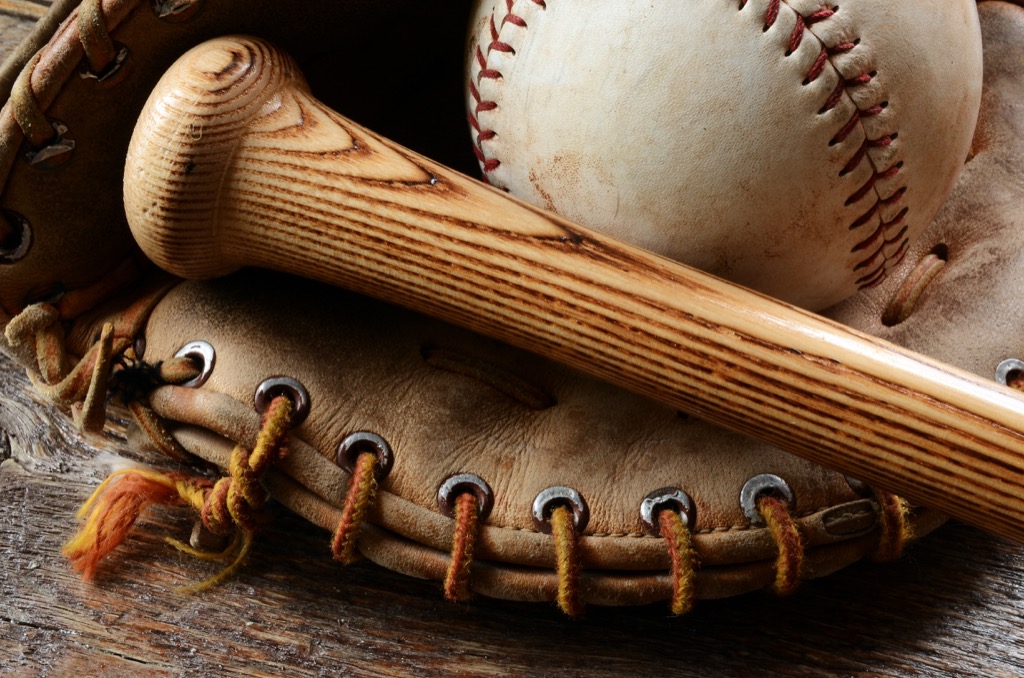
Nowadays, we’re used to seeing baseball umpires crouch behind home plate ready to make a call on the whirlwind action. But prior to 1859, the pros responsible for handing out strikes sat in chairs behind home plate. And while that seems weird enough, what makes it even stranger is that they used rocking chairs 20 feet behind where the batters stood.
44
Platypuses don’t have stomachs.

Platypuses are so bizarre that people originally thought that they were a hoax. But even though researchers are now more familiar with the critters, the animals are still nearly as unbelievable. On top of having a bird-like bill and webbed feet, the swimming mammals don’t have stomachs. National Geographic explains that if you take a peek inside a platypus, “you’ll find another weird feature: Its gullet connects directly to its intestines. There’s no sac in the middle that secretes powerful acids and digestive enzymes.” (In other words, there’s no stomach.)
45
A pangram sentence is one that contains every letter in the English alphabet.

If you’ve ever found yourself saying something along the lines of the “two driven jocks help fax my big quiz” or “the five boxing wizards jump quickly,” then you’ve used a pangram sentence which contains at least one of every letter in the English alphabet. And if you’re keen on keeping them a regular part of your everyday speech, then you can also say things like “the job requires extra pluck and zeal from every young wage earner” and “jaded zombies acted quaintly but kept driving their oxen forward,” which is undeniably something we can all see ourselves saying from time to time (*heavy sarcasm implied*).
46
It would take 22.7 years to eat at every restaurant in New York City.

New York City is a hub for chefs who are at the top of their game as well as food-lovers who like to sample countless delights. But in order to eat at every restaurant in NYC, it would take a total 22.7 years of going to one spot a day, according to data from Open Table.
47
Air pollution now kills more people than smoking.

A new study led by the Max Planck Institute for Chemistry which appeared in the European Heart Journal found that air pollution is now responsible for almost nine million premature deaths every year. The study’s co-author professor Thomas Münzel explained, “To put this into perspective, this means that air pollution causes more extra deaths a year than tobacco smoking, which the World Health Organization estimates was responsible for an extra 7.2 million deaths in 2015.”
48
Chip bags are pumped full of nitrogen.

All that excess air in chip bags isn’t there to dupe buyers into thinking there are more chips inside. In fact, it serves a purpose—and no, it doesn’t contain oxygen. Instead, chip bags are filled with nitrogen. Oxygen would quickly turn the chips rancid, while nitrogen preserves the freshness of the chips, prevents combustion, and creates sufficient cushioning during shipping so the chips don’t get crushed.
49
Häagen-Dazs doesn’t mean anything in any language.

The ice cream company was started in 1961 by Rose and Reuben Mattus, both Jewish and of Polish descent, in the Bronx. Recognizing the marketing power of a great name, they decided to name the company something that would evoke “old-world craftsmanship,” and, in brainstorming, they figured what better name to go with than one that honors Denmark, which helped the Jews win in WWII?
The reality, however, is that the Danish language doesn’t even use that an a with an umlaut (ä) in any of its spelling, and the “-zs” ending isn’t Danish, it’s Hungarian. Finally, we have a reason as to why that name was so hard to read when we were kids—because it’s not real!
50
Walmart greeters were originally introduced to stop shoplifters.

The friendly greeters you can spot at any Walmart location were originally put in place to deter shoplifters. In 1980, the manager of a Walmart in Louisiana was trying to figure out how to reduce theft, so he hired a woman to stand by the front door and greet customers, which would also intimidate potential shoplifters. When founder Sam Walton visited the store, he instituted it as company policy across every Walmart in the nation. Reducing the theft allows Walmart to keep its prices low for its customers.
51
When you travel, your brain is on alert.

It’s called the “first night effect,” according to a 2016 study published in Current Biology, and it’s because one side of your brain remains active in order to react to potential dangers in a novel environment. The left side of your brain stays more awake for the first night in an unfamiliar place, so you’re kind of sleeping with one eye open—in a way.
52
Sharks don’t technically sleep.
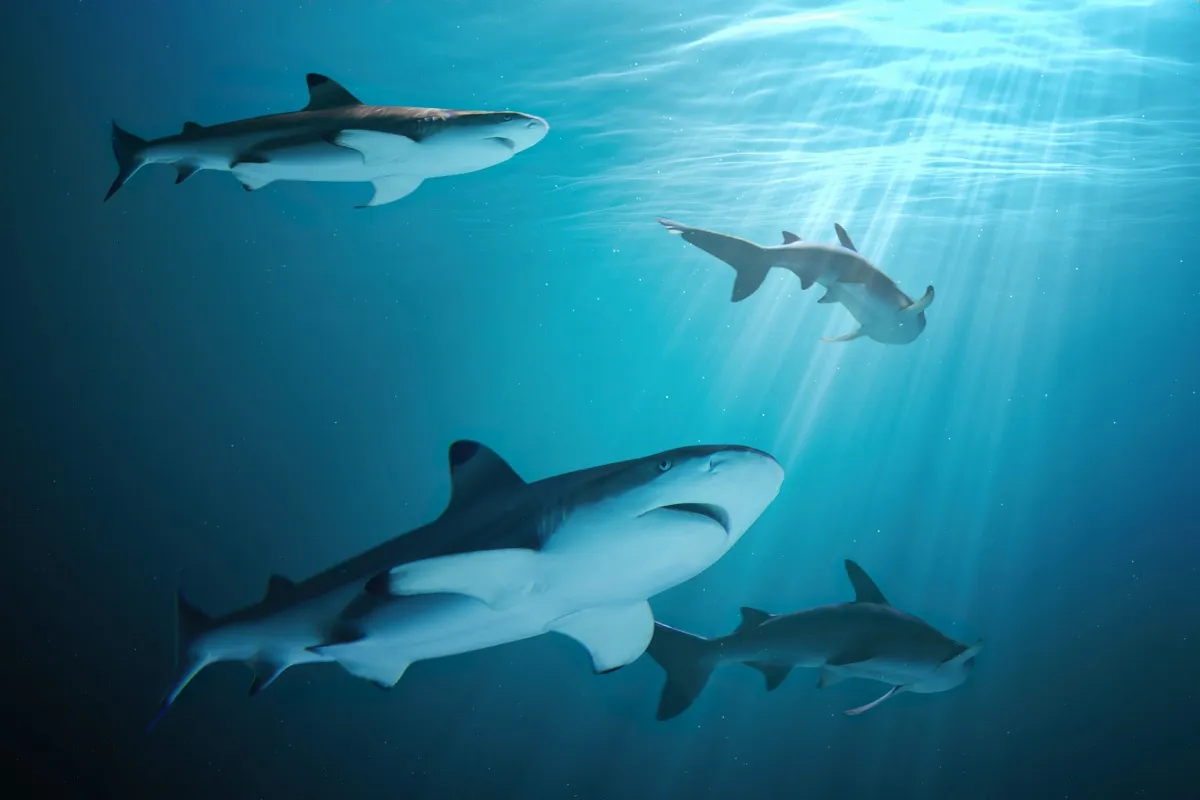
It was originally believed that sharks don’t sleep because they always need to stay moving in order for oxygen-rich water to flow through their gills, which is how they breathe. However, that theory was disproved when scientists observed how sharks are able to lay still on the ocean floor.
What we have learned, though, is that sharks don’t “sleep” the way humans “sleep.” There’s never a point where a shark’s brain enters rest. Similar to how we stay partially awake during “first night” sleep, sharks’ brains just take breaks.
53
Fortune cookies aren’t from China.

In fact, they were actually influenced more by Japan than China. They were born in the 1900s in California, and though their specific inventor is unknown, it has been determined that they were based on Japanese senbei: rice crackers. It’s believed that they were first served in Hagiwara Japanese Tea Garden, in San Francisco, with small thank-you notes inside for patrons, rather than fortunes.
Around the same time, David Jung and his brother-in-law, Lester Soo Hoo immigrated to Los Angeles. There, they founded Hong Kong Noodle Company, and began passing out the same style cookies with inspiring scriptures. It’s still not crystal clear who is responsible, but general consensus posits that they were born in the Japanese Tea Garden. You won’t find restaurants in China handing out fortune cookies—unless you find yourself in an Americanized eatery—but, in Japan, omikuji-senbei (rice crackers with fortunes inside) have been a delicacy since the 19th century.
54
The tomato is legally a vegetable.

As the saying goes, “Intelligence is knowing a tomato is a fruit; wisdom is knowing not to put it in a fruit salad.” Well, apparently intelligence is also a way to squeeze a bit more tax money out of taxpayers.
In 1893, according to story from NPR, the U.S. Supreme Court declared them a vegetable for taxation purposes in the case of Nix v. Hedden. Nix, a produce company, wanted to declare the tomato a fruit—based on its actual biological classification, in addition to the lower tax rate that fruits carried—while Hedden, a New York tax collector, argued it should be declared a vegetable—based on its practical use as a vegetable, in addition to the additional tax he could collect as a result of the higher tax rate for vegetables. The ruling was that the tomato was commonly known was a vegetable, and should be taxed as such.
55
Alcohol only makes you feel warm.

Alcohol is a vasodilator, meaning it dilates blood vessels. The rosy flush commonly known as the “liquor blanket” is simply a result of blood vessels near the surface of the skin dilating; you’re not getting warmer, your blood is just being redistributed. This can actually be even more dangerous, since a main function of your skin receptors is to respond to cold by constricting the blood vessels near the skin so that more blood is sent to internal organs. Alcohol totally reverses that function.
56
One out of every eight U.S. residents lives in California.
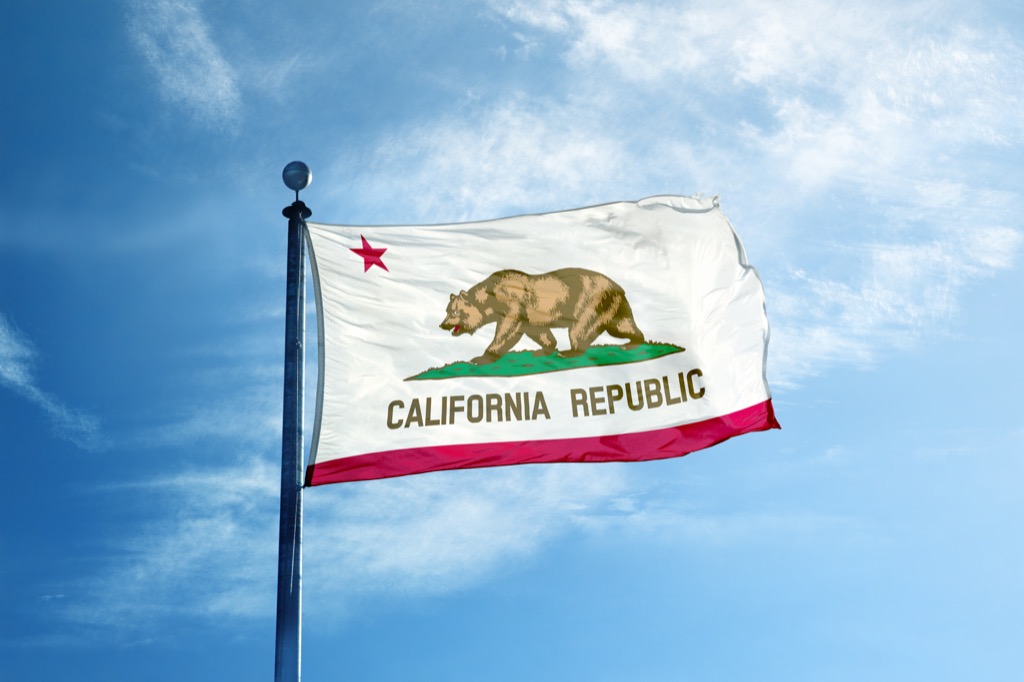
If you live in California or know a few people who do, that’s because a large portion of the U.S. population calls the Golden State home. In fact, one out of every eight residents in the country lives in California and that number continues to rise, according to the Public Policy Institute of California. By 2050, the state’s population is expected to reach 50 million people. To put that in perspective, in 2019, there are 327.2 million people in America.
57
Basketball hoops used to be actual baskets.

Well, this one’s kind of in the name. The first “hoops” were peach baskets drilled to a wooden panel in 1891 at the YMCA. In the 1900s, they were replaced with a metal hoop and netting, but the netting was sewn at the bottom. It wasn’t until 15 years after the sport was invented that someone had the idea to cut the bottom of the netting, so that the ball wouldn’t have to be manually retrieved every time someone made a shot.
58
Shark babies eat each other in the womb.
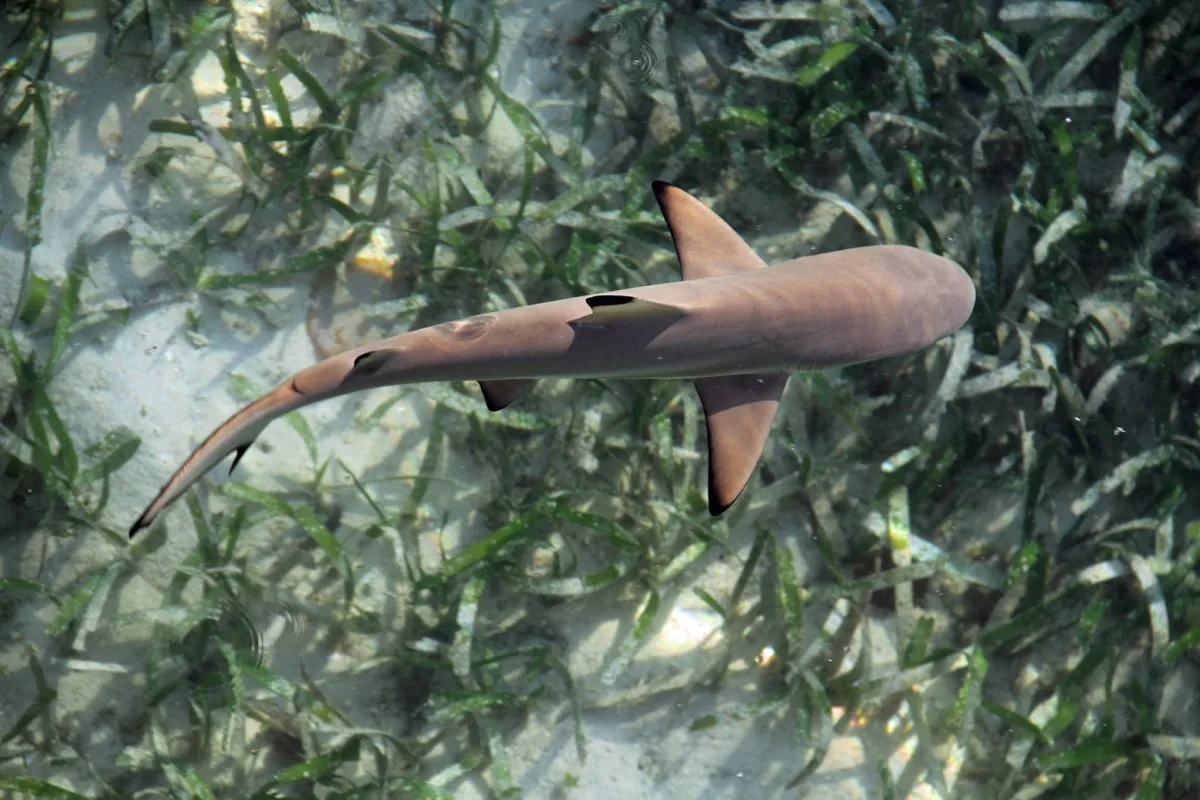
As soon as tiger shark embryos develop teeth, they attack and eat each other in utero. Up to 12 babies start out, while usually only two make it out alive, all but one being eaten by the largest baby in the litter. As a result, tiger shark babies are generally much larger than babies of other shark species, so they’re relatively safe from predators.
Paternal DNA may also play a role. At any given time, pregnant sharks can have two to three different DNAs in their embryos—meaning 2-3 different fathers—and scientists have hypothesized that the male sharks attack and eat the other ones that are not of the same genetic makeup as they are.
59
Beauty and the Beast was originally a twisted tale.
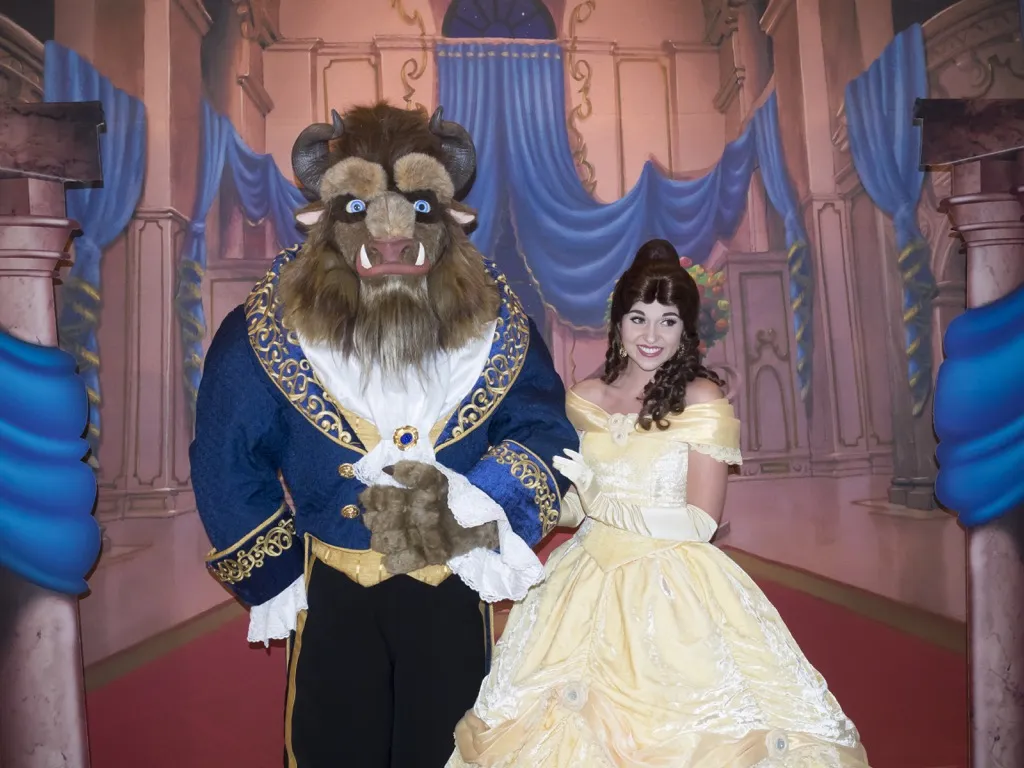
Beauty and the Beast was based on a French author’s story published in 1740 that aimed to romanticize arranged marriages. In the story, a wealthy family with six children loses all its riches. Through certain events, one of the girls—Beauty, the youngest—is promised to the Beast in an arranged marriage, which is not very romantic at all. The story ends happily, the same way it does as it is known now, where Beauty finally agrees to marry the Beast, and Prince Charming is revealed.
60
Your thumb doesn’t make a sound when you snap your fingers.
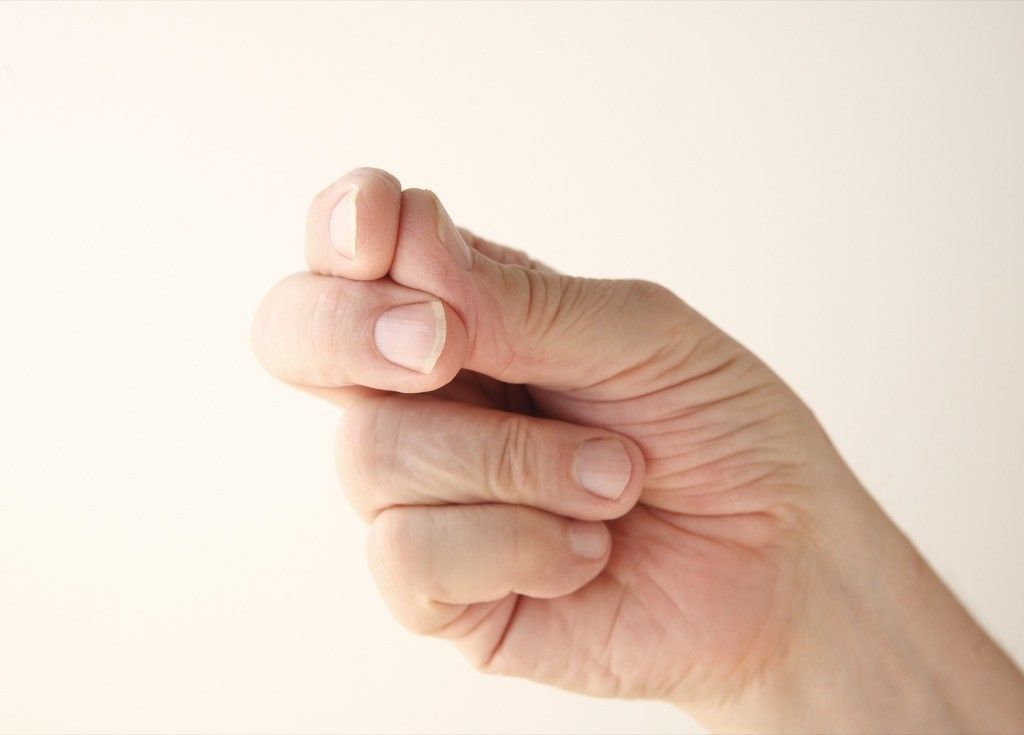
The sound you hear is actually created by your middle finger hitting against your palm, not your thumb rubbing against your index finger. Point this out to your friends in any conversation and you’ll receive snaps for being clever.
61
Pigeon feces was once the property of the British Crown.
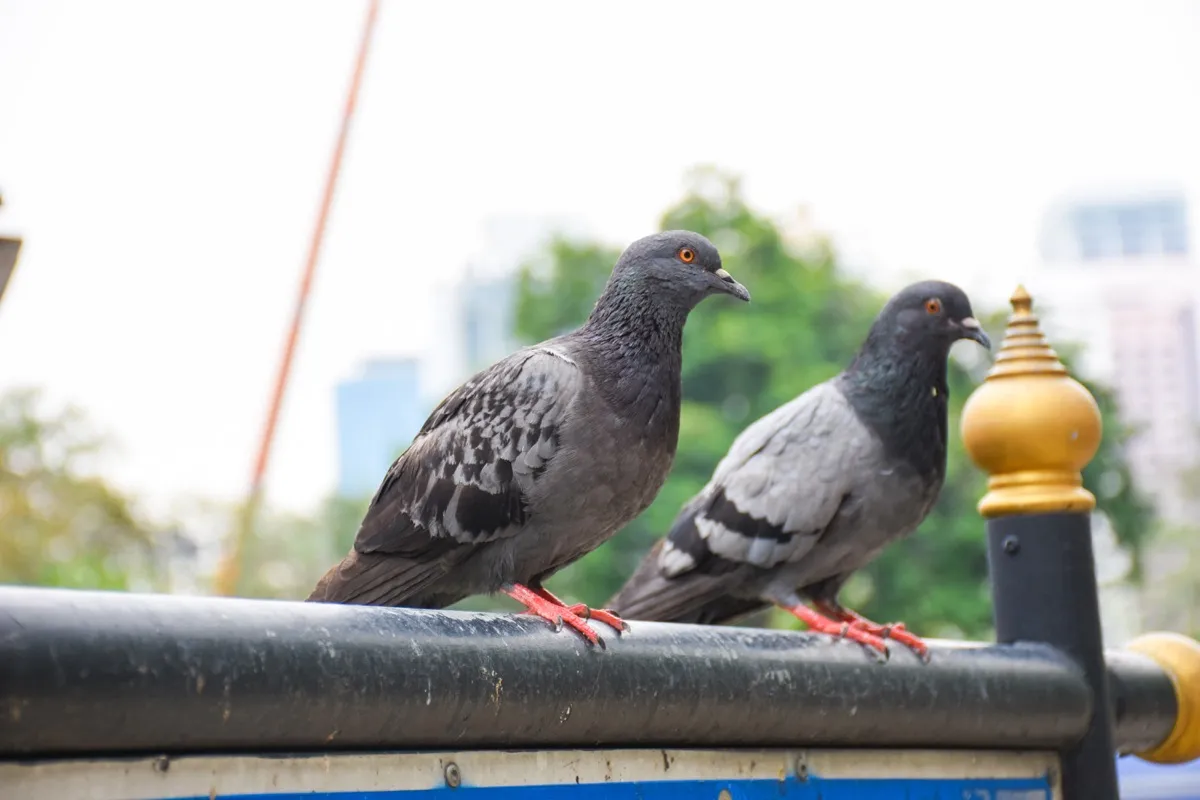
The royal family in England owns jaw-dropping jewels, plenty of prime property, and other coveted items that commoners could only dream about. But one of the few things owned by the British Crown that you won’t be overly envious about is pigeon feces. That’s right, due to the fact that the bird droppings were once used to make gunpowder, King George I claimed all feces for the crown back in the 18th century. According to The Chicago Tribune, the king even sent guards to watch over the poo-producing pigeons.
62
A nail polish company once sold fake teeth.

Odontorium Products, Inc., was a dental company in the 1980s that supplied dental acrylics to make fake teeth. In the ’80s—the golden era of long and colorful nails—nail techs began using dental acrylics illegally to make acrylic nails, so the company developed a nail-friendly acrylic that could be used and distributed legally in the beauty industry. Eventually, they closed the dental side of the business to focus entirely on nail products.
63
When you see floaters, they are shadows of things inside your eye.
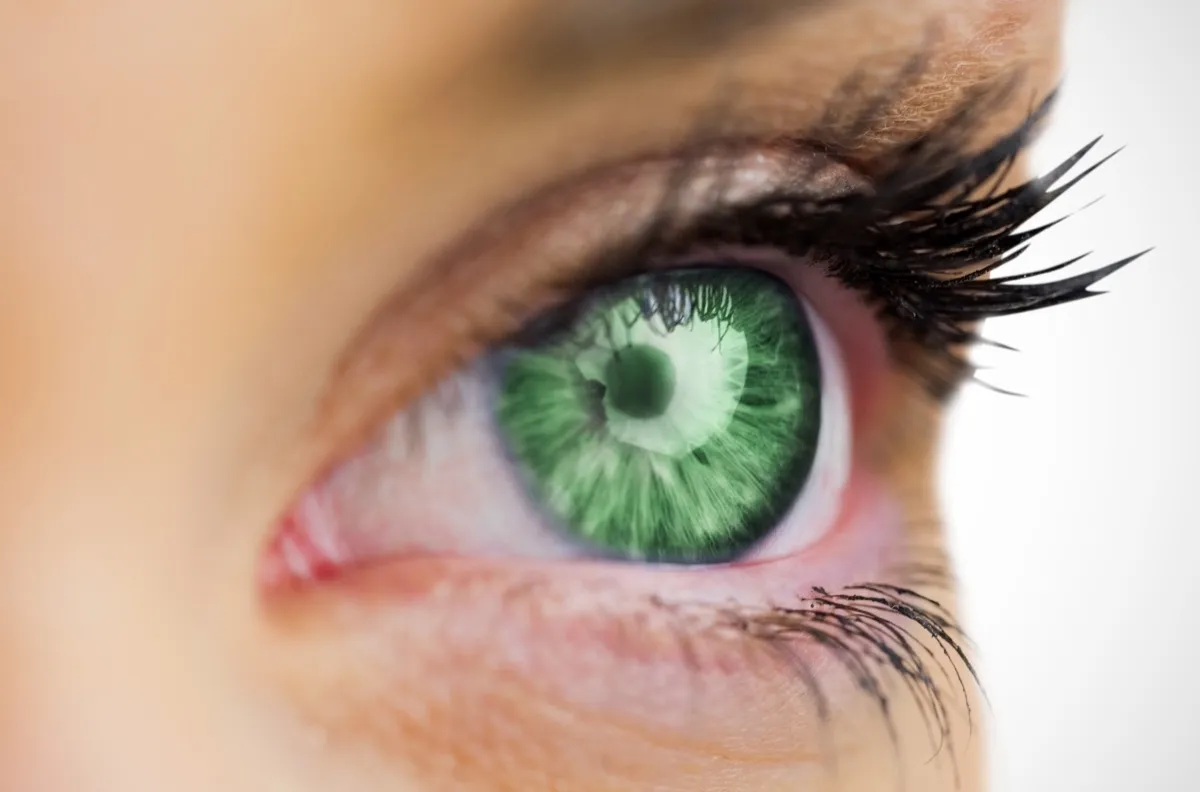
Though they look like they’re floating out in front of your eye, they’re actually inside of it. The squiggles and dots you see are the shadows that floaters cast on the retina, which is the layer on the back of your eye that senses light. The eye floaters are small clumps of gel or cells inside the vitreous, the clear jelly-like fluid that fills the inside of your eye. Sometimes they’re harmless, a normal part of the aging process, but sometimes they’re a sign of a retina tear. If you start seeing them show up randomly or excessively, make an appointment with your optometrist, stat.
64
In Milan, It’s a legal requirement to smile at all times.

If you’re feeling blue, then you better stay away from Milan. In the Italian city, it’s a legal requirement for people to smile at all times. The only exception to this seemingly strict, happiness-enforcing rule is during funerals or hospital visits. Apparently, the rule came from 19th-century city regulations imposed by the Austrians who then ruled over the city, and it was never repealed since. Fortunately, frowning rebels can probably expect to get by without a fine.
65
Your skin is your largest organ.

An adult’s skin stretched out would cover 20 square feet and weigh 8 to 10 pounds total. In one square inch of skin there are more than 1,000 nerve endings, 20 blood vessels, and 650 sweat glands. Humans shed about 500 million skin cells every day.
66
Sesame Street’s Guy Smiley’s real name is Bernie Liederkrantz
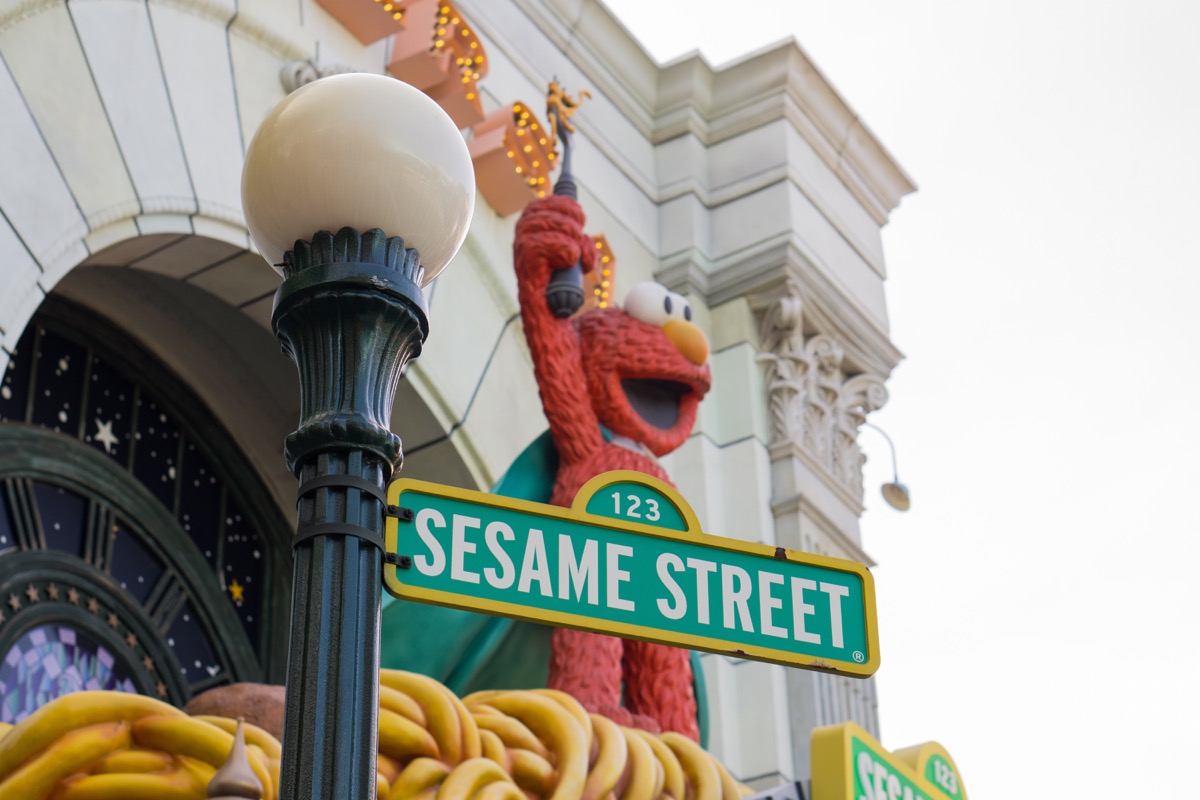
Wheel of Fortune host Pat Sajak was actually born as Patrick Leonard Sajdak and Jeopardy’s main man Alex Trebek was originally George Alexander Trebek, which means that they only slightly altered their names for their on-screen careers. But Sesame Street’s resident game show host Guy Smiley reportedly went for something totally different when he opted for a stage name instead of his own. Turns out, his given name is Bernie Liederkrantz, which may also be spelled Bernie Liederkranz.
67
Enough Mickey Mouse ears are sold each year to cover the head of every person in Orange County, Florida.
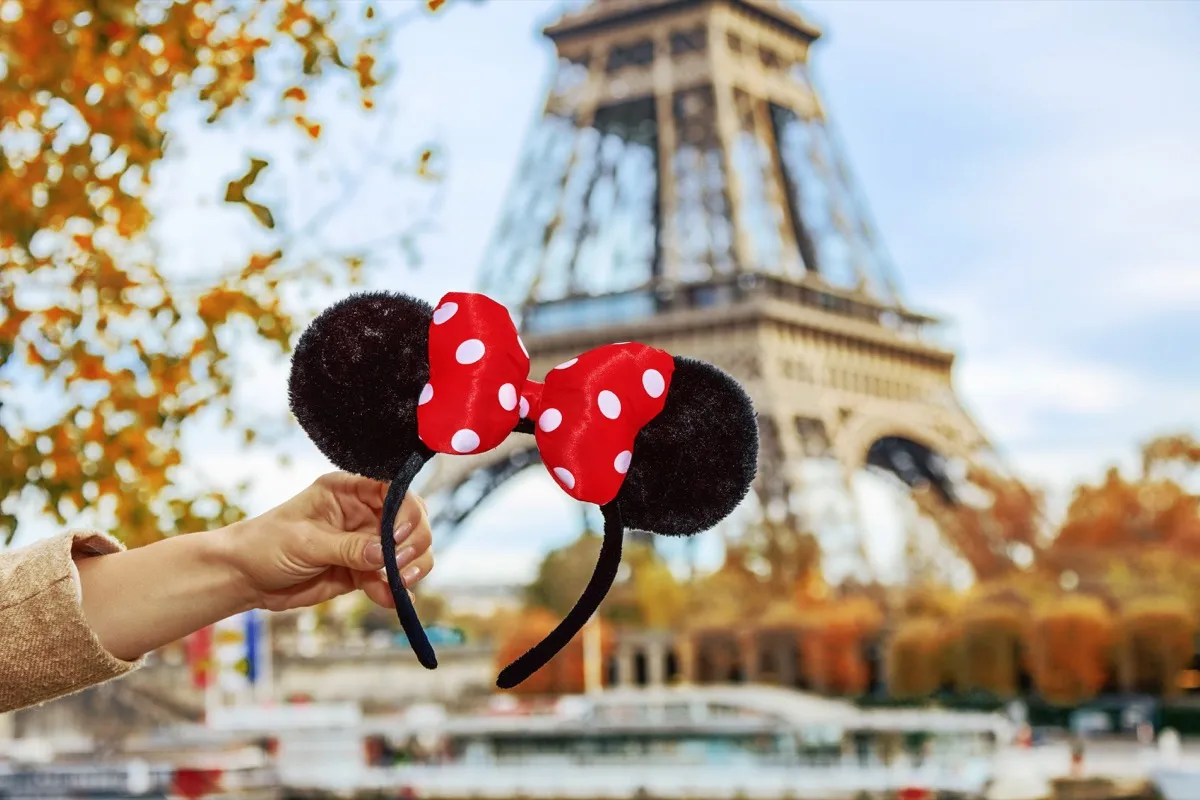
When laid end to end, they’d stretch 175 miles long. And while Disney doesn’t say exactly how many hats that means they sell, you can bet it’s nearly a million, if not more.
68
The Nike logo design cost $35.
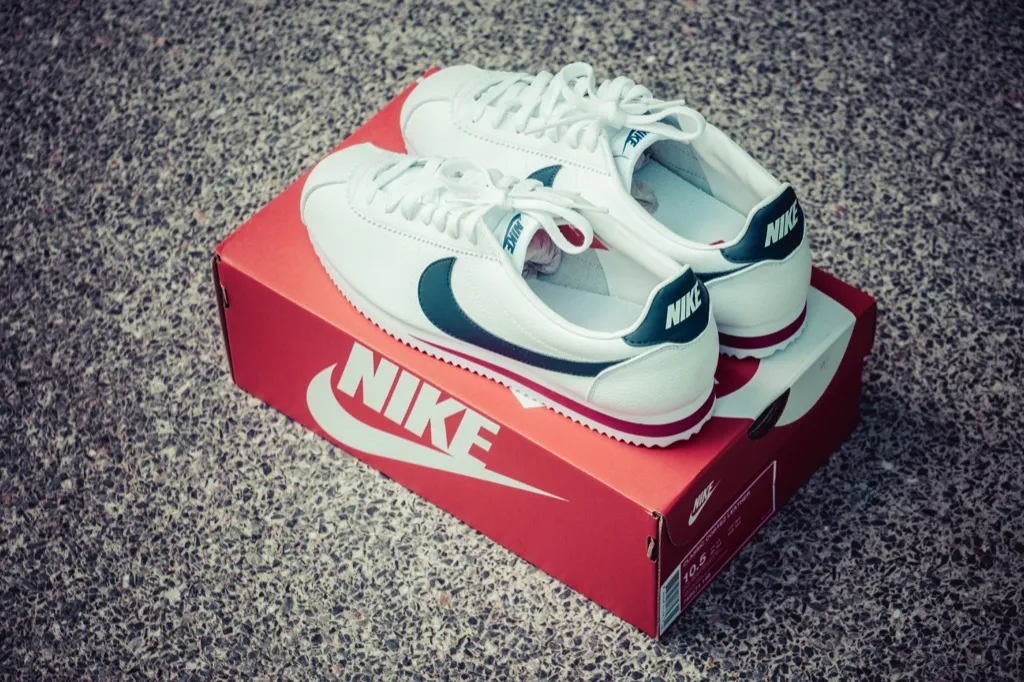
In 1971, Phil Knight, the co-founder of Nike, paid a mere $35—about $221 in today’s economy—to graphic design student Carolyn Davidson create the brand’s now beyond iconic swoosh logo. At the time, the company was just starting as Knight’s side business so he couldn’t afford much for the logo. However, as Nike grew, he paid it back to Davidson: not only did she work with Nike until 1975, she was also gifted 500 shares in the company.
69
The word “jaywalker” means a “walking rube.”

According to Merriam-Webster, the word “jay” was an old term used to describe someone as a “greenhorn or rube.” In other words, an unintelligent, possibly foolish person. Sometime in the early 1900s, the word “jaywalker” was first used to describe pedestrians crossing the street at random points, put themselves and drivers at risk of an accident.
70
Minnie and Mickey were partners in real life.
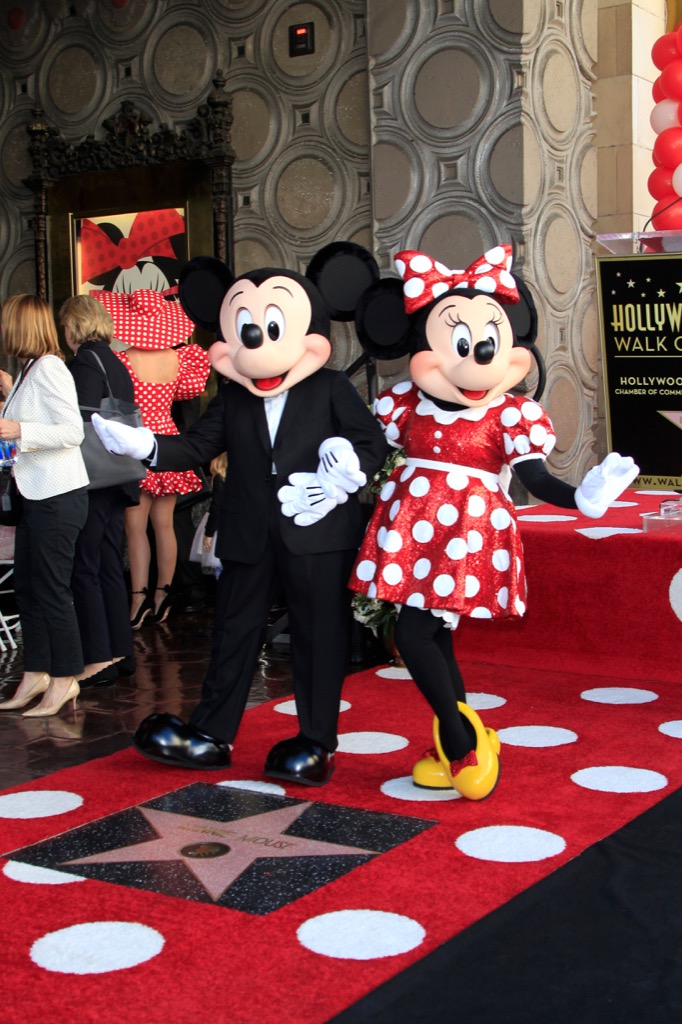
Russi Taylor snagged the role of Minnie’s voice in 1986, while Wayne Allwine had been doing the voice of Mickey since 1977. They met each other in the hallway of Disney Studios, and at the time, both of them were actually married—to other people, unhappily. They became wonderful friends, and, in 1991, they got married, and remained so happily until Wayne’s passing.
71
Batman’s online screen name is JonDoe297.
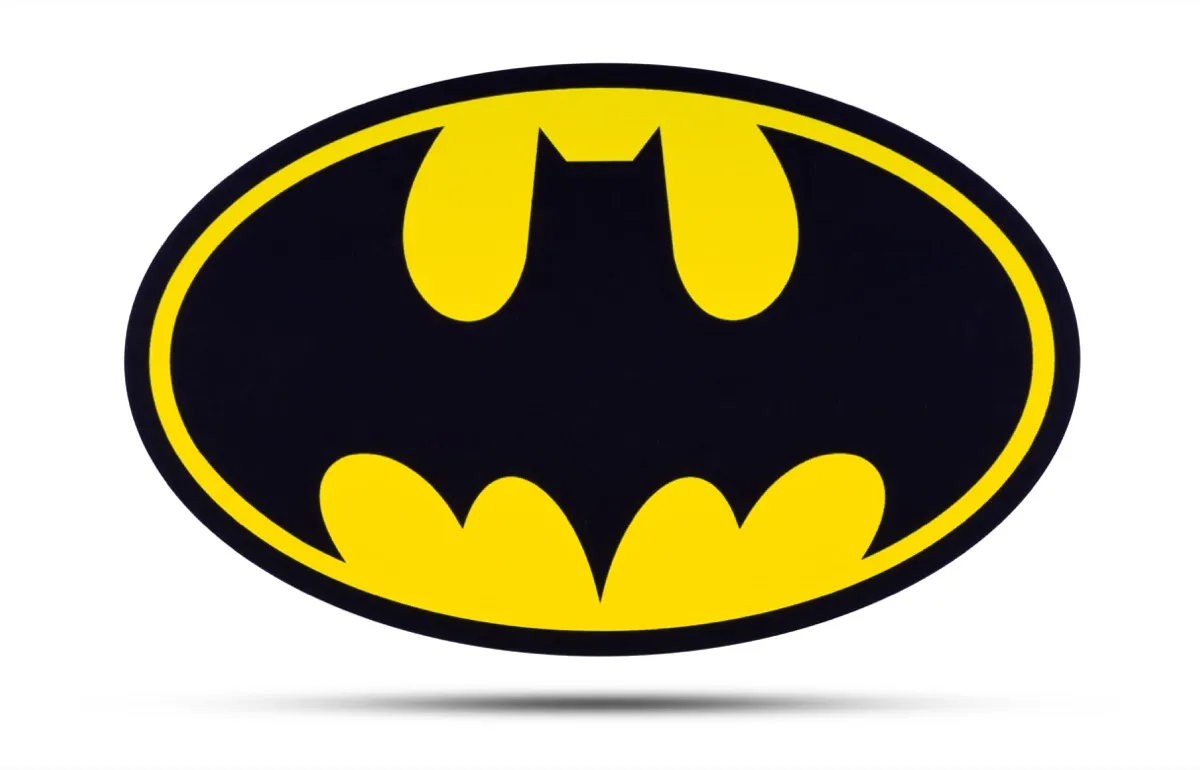
Batman has a seemingly endless fortune and every crime-fighting gadget a vigilante could ask for, but sometimes even superheroes want to take advantage of the convenience of the internet. And a panel shown by IGN proves that in one print cartoon, the computer-savvy Bruce Wayne, a.k.a. Batman, engages in online conversations using the screen name JonDoe297.
72
Dr. Seuss’s wrote his most famous book to win a bet.
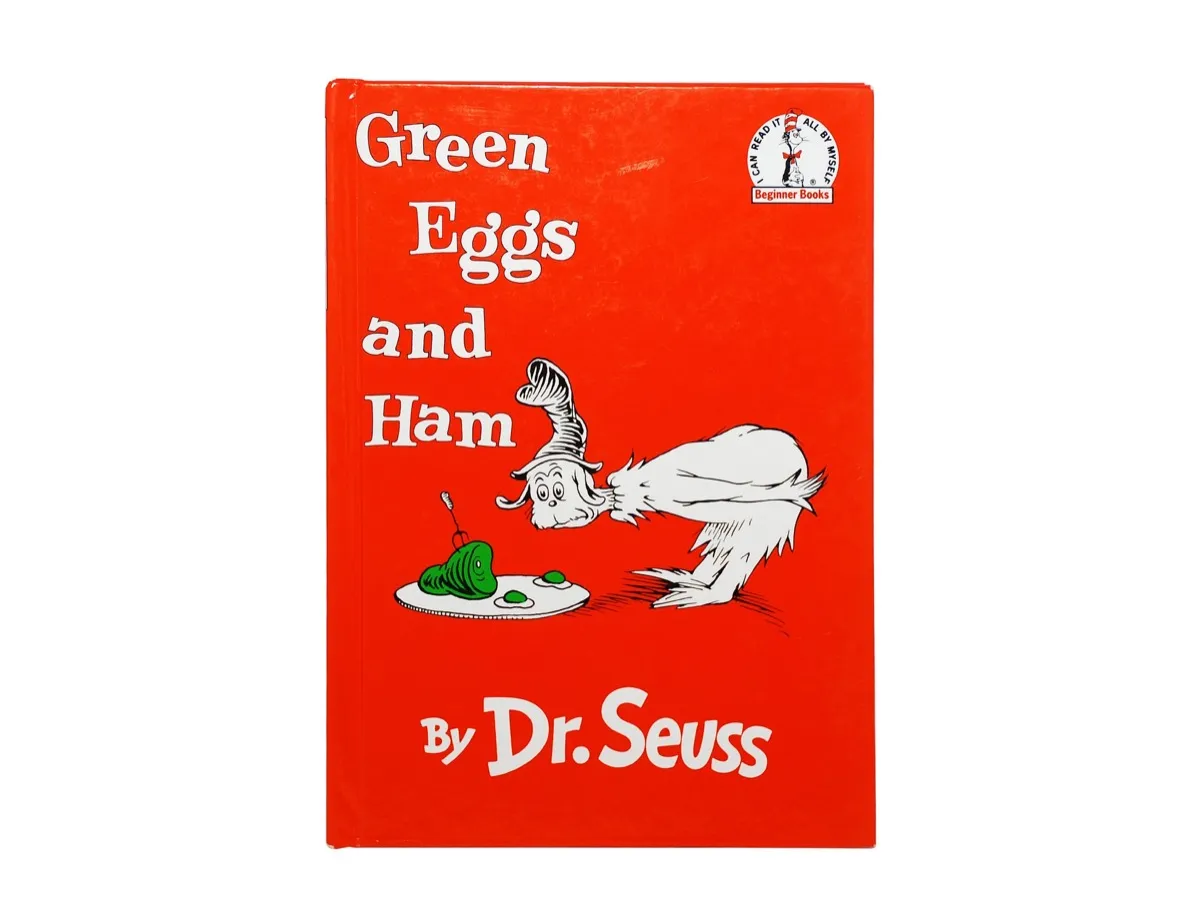
In 1960, editor Bennett Cerf, the founder of Random House Publishing, bet Theo Geisel—the man you may know as as Dr. Seuss—that he couldn’t write an entertaining children’s book with fewer than 50 words. The result? Green Eggs and Ham—one of the most popular children’s books in history. Dr. Seuss saw how wildly successful, and useful, this 50-word constraint was for children just learning to read, and went on to write many more books, finding the limitation of a strict word count to be an untapped source of creativity.
73
Lyme disease is named after a place
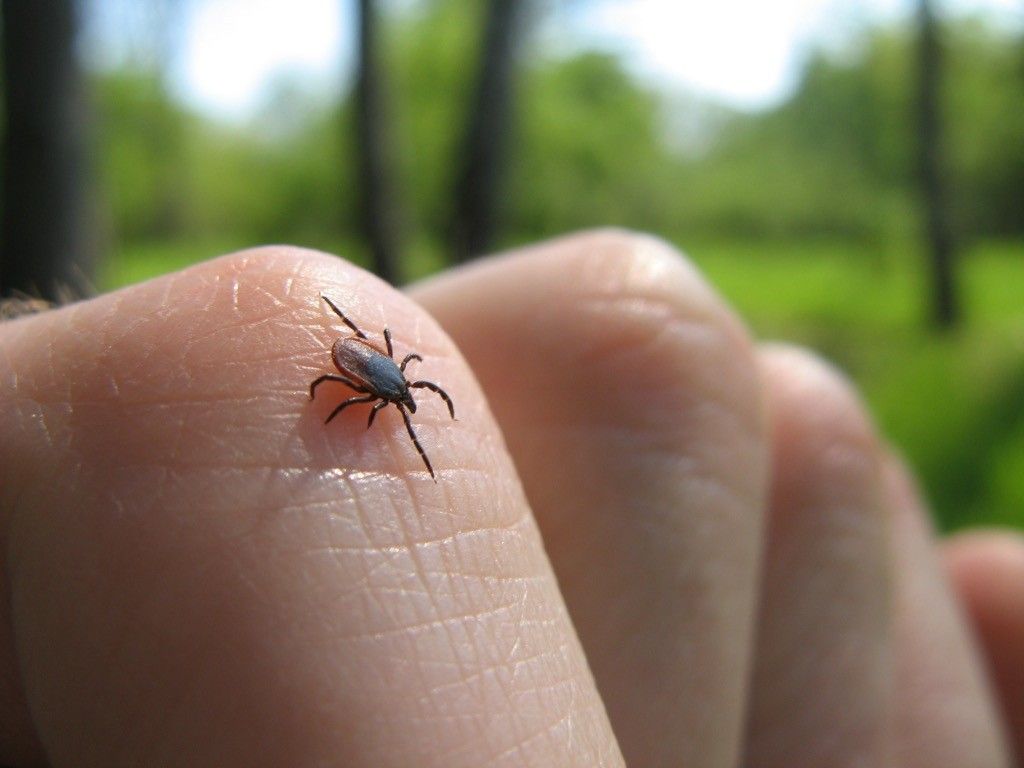
The disease first gained attention in the 1970s in Lyme, Connecticut, where children and adults were experiencing puzzling conditions due to what seemed to be no cause: rashes, fatigue, flu-like symptoms, paralysis, and more. Doctors pretty much gave up trying to figure it out, and two mothers were the ones responsible for conducting research—they were still unable to determine what caused it, but they did give it its name. In 1981, a scientist named Willy Burgdorfer finally identified a connection between ticks and the disease.
74
“Dudeism” is an actual religion.
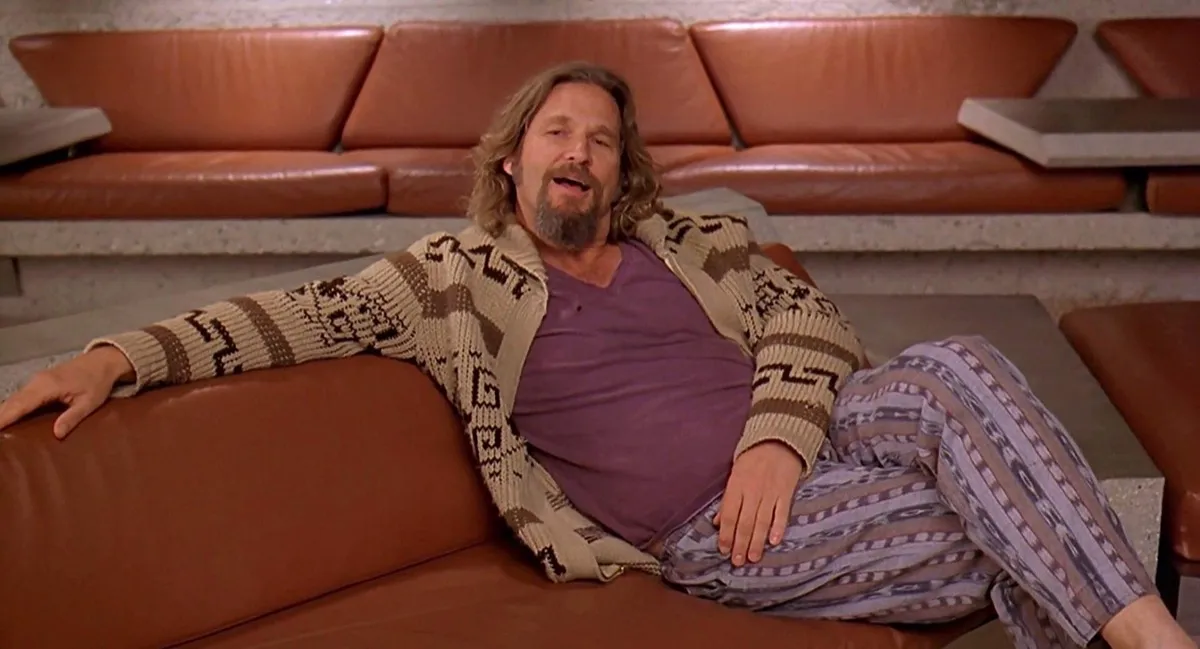
Yes, you read that right: the laid-back pacifism espoused by Jeff “The Dude” Lebowski in The Big Lebowski has its very own church. The Lebowski-inspired Church of the Latter-Day Dudes says it has ordained over 450,000 Dudeist priests worldwide, and even has an online university where they offer free honorary degrees. Say what you want about how questionable this foundation is for a belief system, but hey, at least it’s an ethos.
75
QR codes can be used to plan your funeral.

QR codes—those square digital barcodes you can scan with a smartphone that are usually used to compare prices of items in supermarkets—have been popping up in cemeteries. But instead of seeing prices when you scan a gravestone code, you’ll read an obituary and see photos of the deceased. And you can pre-plan your funeral online.
76
You’re not supposed to shake a polaroid.

In the 1940s, when Polaroid first came out, the instant-film did not have a coating, and you literally had to coat the photo yourself with a liquid emulsifier, then let it dry. It would stay wet for up to 15 minutes. The easiest way to get it to dry? A quick shake. Eventually, the photos were covered in their own emulsifier with a mylar coating, so there was no need to cover the liquid and dry it yourself. Everything happened under the plastic.
However, the shaking had already become a thing people did. In fact, Polaroid issued a statement in 2004—after Outkast’s single “Hey Ya” cried out to “shake it like a Polaroid picture”—that shaking the instant-film can actually damage the photos, because it can cause the semi-wet ink to wave or blur before it’s had the time to dry properly.
77
There’s a natural lake the color of Pepto Bismol in Australia.
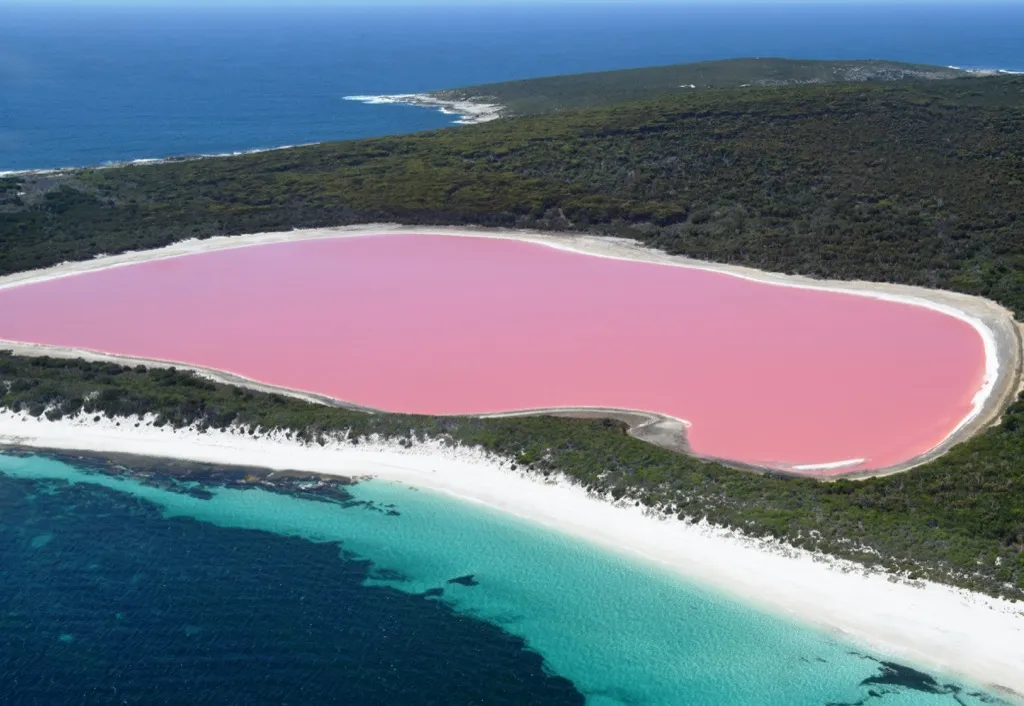
Western Australia’s Lake Hillier might be a place worth adding to your bucket list. That’s because it’s a bright pink lake that is not manmade, and, to this day, continues to baffle scientists. Their best guess is that it has something to do with the algae in it, specifically dunaliella, which produces carotenoids—the things that make carrots bright orange. There’s also a high concentration of salts, which may have something to do with the color. The lake is totally safe to touch, but you’re not allowed to swim in it.
78
Duffel bags are named after a town.

The duffel bag gets its name from the town of Duffel, Belgium, where the cloth used in the bags was originally sold. The fabric was a coarse, thick woolen cloth that was originally used for the sturdy coverings of ships. It’s been suggested that the bags were made out of scraps for sailors and explorers on their way out to sea.
79
Bug spray doesn’t repel mosquitos.

Though it’s pretty repelling to humans, it’s not a smell that repels mosquitos. DEET just masks what you smell like to the mosquito. It creates a barrier on your skin that interferes with the mosquito’s antennae that detect the lactic acid and carbon dioxide they’re attracted to that usually make them bite you.
Also, your bug spray should always go on after sunscreen. If you can’t stand the DEET in regular bug spray, you may consider using lavender oil and lemongrass oil on your pulse points, as they repel mosquitos (and other insects) as well. In fact, if you’re having a bug problem in your garden, you can plant lemongrass and lavender to greatly minimize insect problems without having to use pesticides.
80
It would only take one hour to drive to space.

If you got into your car, turned on the ignition and drove up to the sky at 60 mph, it would only take one hour to get to outer space, according to astronomer Fred Hoyle. Of course, that’s if you could drive upwards at all. But it sure is fun to think about.
81
Chuck E. Cheese and Atari were both invented by the same man.
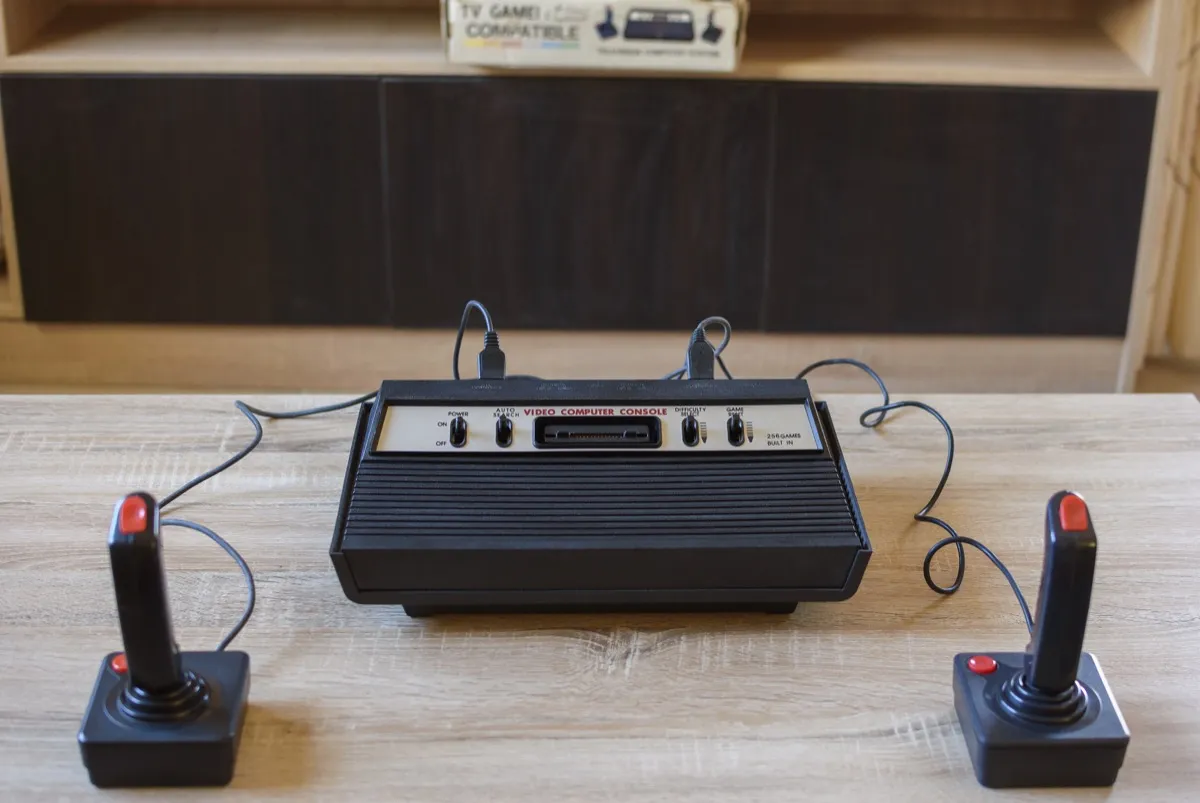
Nolan Bushnell, the inventor of Atari, the gaming console company, was an admirer of what Walt Disney did with his theme parks: create a place for family fun. He wanted to take the concept of arcade games and make it a fun family experience, complete with dining, so the Chuck E. Cheese Pizza-Time Theaters were born. Not only was it a great place for families to gather, it was also a great distribution center for Atari’s ever-growing game line.
82
Killer whales aren’t whales—they’re dolphins.
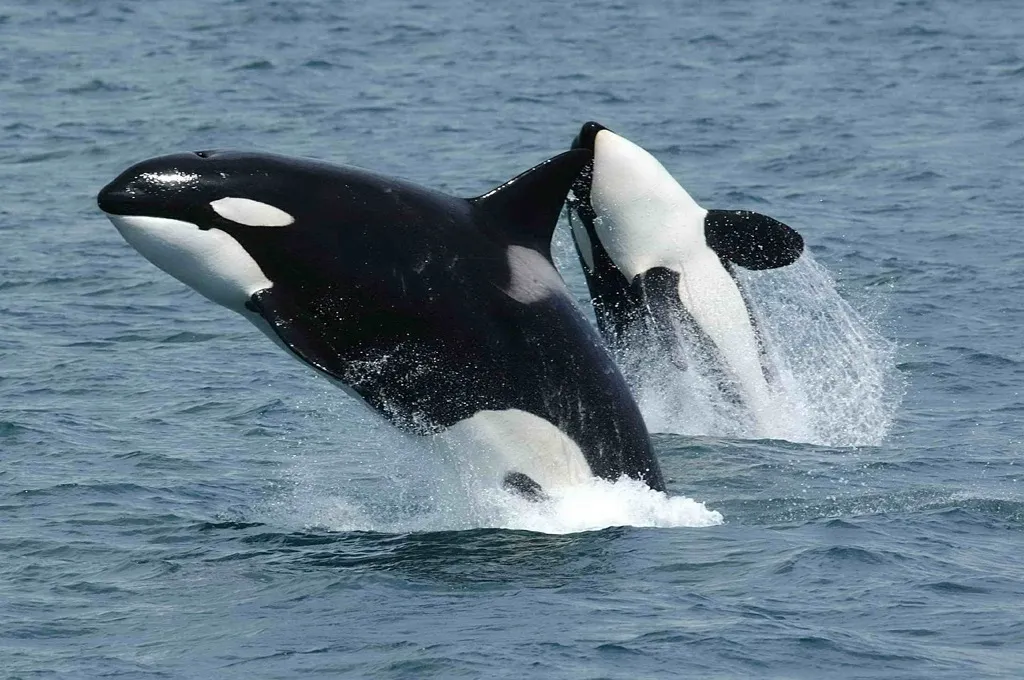
So why are orcas called whales? Orcas were given the name “killer whale” by ancient sailors who observed of groups of them hunting and preying on larger whale species. “Real” whales eat plankton, krill, and much smaller fish, whereas Orca “killer whales”—technically, dolphins—prey on sea lions, large fish, and even seabirds. Orcas’ teeth can get up to 4 inches long!
83
You need saliva to taste food.

You produce about a liter of saliva per day. Over the course of a lifetime, that’s enough to fill two large swimming pools! So what are taste buds for? They do taste the food—once the food has been broken down into a form that the chemoreceptors in the taste buds of your tongue are able to recognize. Liquid is required for the flavors to bind to the receptor molecules, and though water would technically work too, saliva contains enzymes that act on the food you eat in order to not only begin the digestion process, but also to make it so your taste buds can taste it.
84
Baby carrots are actually just carrots.

Baby carrots are not actually baby carrots—they’re just regular carrots that have been chopped up and rounded by a machine. According to the New York Sun, they were invented in 1986 by a farmer, Mike Yurosek, who had too many “ugly,” misshapen carrots that he couldn’t sell to stores. So, experimenting with a potato peeler and green-been slicer, he cut the ugly away from his big carrots, bagged them, and sold them to stores.
85
Cheetahs meow like house cats.
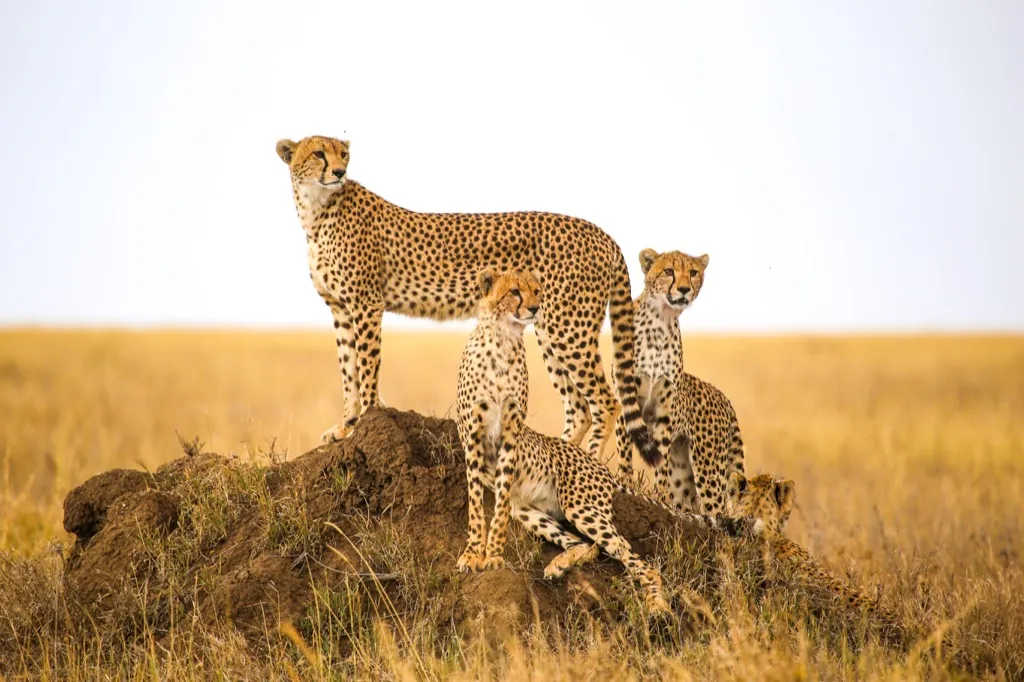
Cheetahs, despite their size, stature, and status, actually can’t roar. They meow just like normal house cats. In fact, only four of the “big cats” actually roar: lions, tigers, leopard, and jaguars, because they have a ligament in their voice box that can be stretched to create a wider pitch range.
86
Some dolphins are so smart that they’re used in the military.
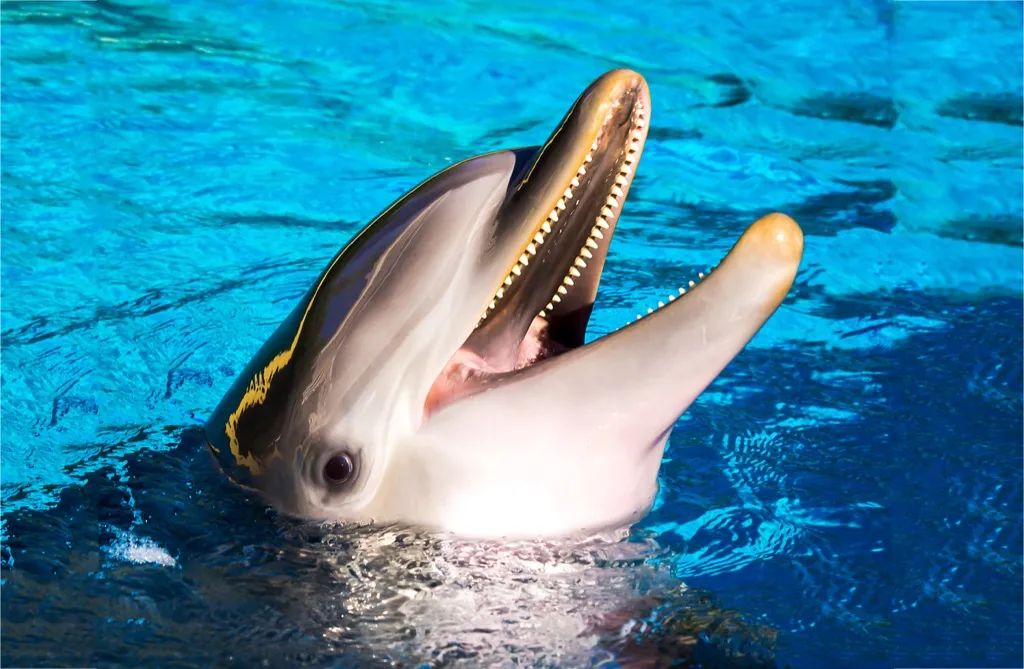
The U.S. military has been training bottlenose dolphins to carry out a range of military tasks since 1960, from locating underwater mines to flagging the presence of enemy swimmers. Even so, despite such advancement, we’ve been outclassed. The Russian Navy was able to train dolphins to attack enemies and sense sonar that was otherwise indiscernible by machinery.
87
You have more than five senses.

Neuroscientists will tell you that you’ve actually got somewhere between 22-33 different senses, which they call “meta-senses.” The most common additional meta-senses are: equilibrioception, or sense of balance; proprioception, or knowing which parts of your body are where without looking (like knowing where your hands are on a keyboard); and thermoception, or being able to sense temperature (like knowing that a recently used stovetop, even if the flame is out, is hot).
88
Dogs can sense disease.

You’re familiar with dogs who can sniff out bombs and illicit substances, but did you know that dogs can literally smell cancer? By getting a whiff of a patient’s breath, they are able to recognize the smell of certain organic compounds that the human body emits when it isn’t working as it should, according to research out of Schillerhohe Hospital in Germany. Canines have also been proven to be able to sense when an epileptic seizure is coming, and can bark and warn the sufferer accordingly.
89
Koala fingerprints are indistinguishable from human fingerprints.
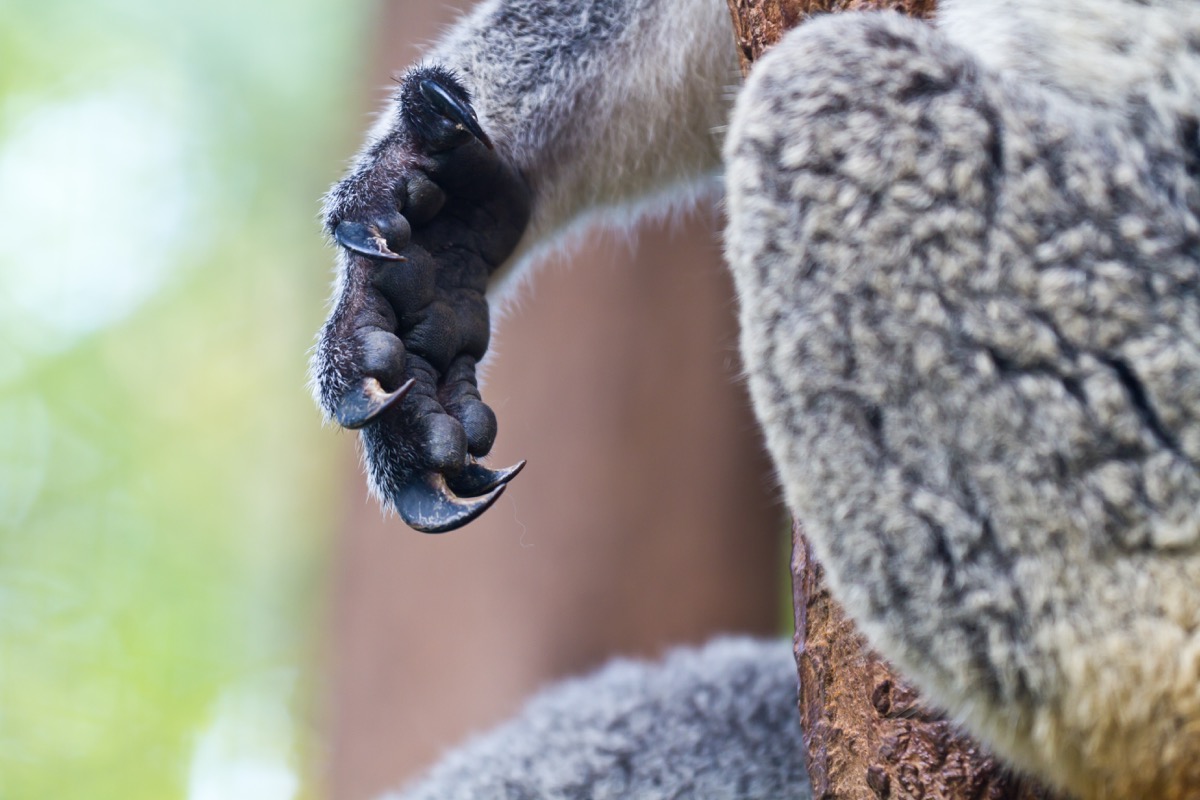
You may think that chimps and monkeys have the closest fingerprints to humans, but it’s actually the prints of cuddly marsupials that are nearly indistinguishable from humans, even under a microscope. Koalas aren’t even that closely related to chimps—the marsupial genus broke away from the primate genus 70 million years ago. What’s even weirder is that none of other marsupials—kangaroos, wombats, any of them—have this fingerprint feature.
90
A book about the Titanic sinking was published years before it actually did.
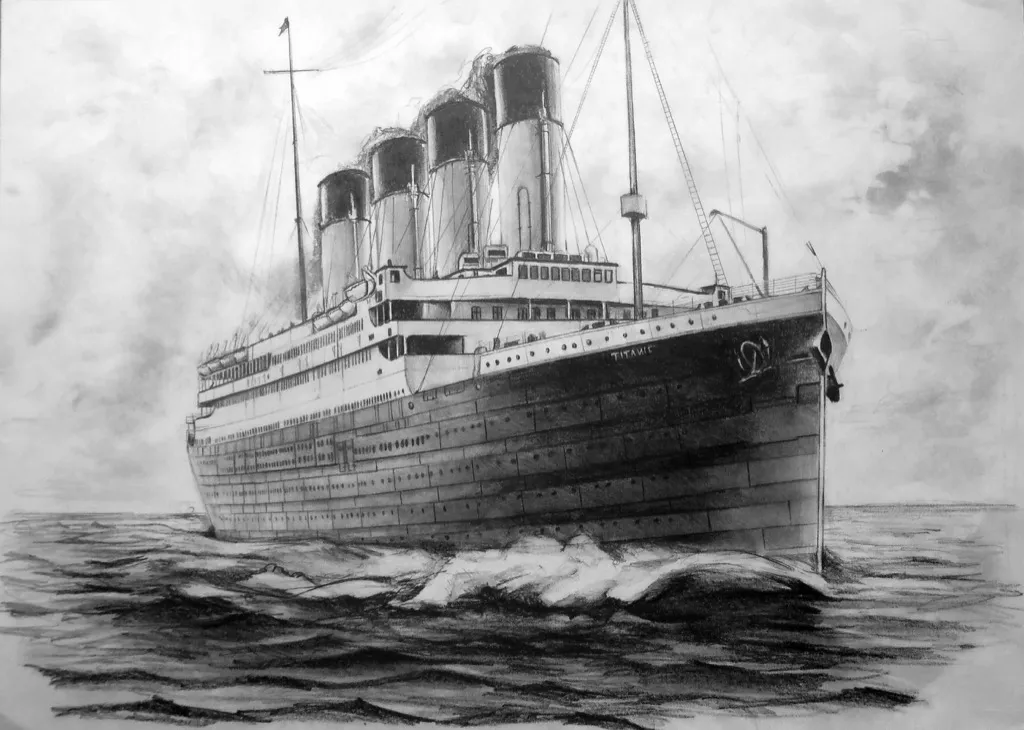
The Wreck of the Titan by Morgan Robertson was published in 1898; the Titanic sank in 1912. Robertson’s book features a cruise ship named Titan that sinks in the North Atlantic after hitting an iceberg in literally the exact same spot: 400 nautical miles from Newfoundland. The Titan had 2,500 passengers, half of whom sank, while the Titanic held 2,200 passengers, half of whom also sank.
91
Peanuts aren’t nuts—they’re legumes.
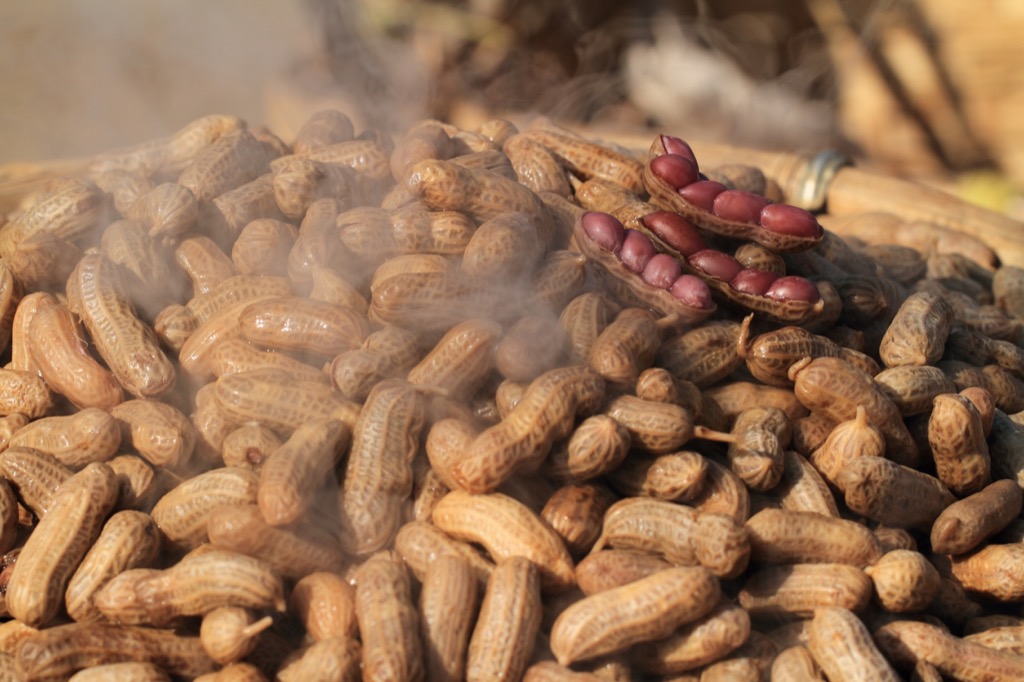
Technically, a peanut is a legume, like beans and peas. The leguminosae family consists of edible seeds enclosed in pods. Peanuts grow underground, unlike all the other “real” nuts—like hazelnuts and chestnuts—which grow on trees and are considered drupes. By this measure, walnuts and pecans are actually legumes too! Still, it’s easier to just call the whole lot of ’em “nuts.” If you want to be a huge stickler, though, you can call them all “culinary nuts.”
92
You can’t—usually—read dreaming.

Reading, writing, and even speaking are very rare in dreams, because the regions of the brain that are responsible for these functions—Broca’s Area and Wernicke’s Area—are not as active during sleep. The exception? Anyone whose vocation or avocations entail a lot of reading, writing, and linguistic creativity. The brains of those people are constantly practicing in this arena and therefore strengthening these parts of the brain, so even in rest, it takes very little work for their neural pathways to access the areas for reading and writing.
93
Actually, dogs do see in color.

Most people think dogs see in black and white, but they actually see in shades of yellow and green. The color spectrum we see is thanks to the rods and cones in our eyes, which are responsible for interpreting color by wavelength. Humans—and primates—see three wavelengths of color (red, blue, and yellow), but dogs only have cones that see two colors (yellow and blue). Basically, to a dog, anything that is a shade of red will just be interpreted as a shade of green.
94
Mars may have had underground lakes connected beneath the entire planet.
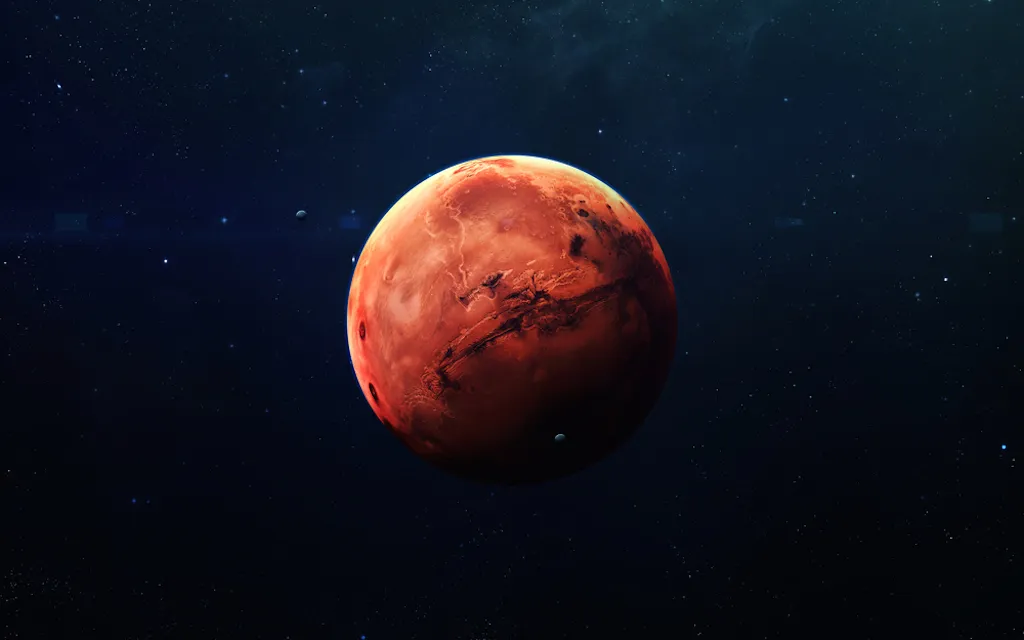
Research published in the Journal of Geophysical Research: Planets included evidence that Mars was once home to a massive global groundwater network. Francesco Salese, PhD, a planetary geologist at Utrecht University in the Netherlands explained that the geological evidence of water-related environments that were found led them to believe that the underground system was “possibly interconnected,” something that couldn’t occur on Earth due to the fact that our planet is made up of multiple tectonic plates that split our globe into sections while Mars is thought to be a “one-plate planet.”
95
In Japan, napping on the job is considered honorable.

To take it from The New York Times, in Japan, napping on the job is seen as a sign of diligence—as though you’re working yourself to exhaustion. There’s even a word for it: inemuri, which roughly translates to “present while sleeping.”
Inemuri isn’t new by any means, and has in fact been around for more than 1,000 years. However, it’s usually only cool in white collar jobs; you won’t find a barista napping on the clock. Also, inemuri isn’t only limited to work. It’s common to sleep in public—in coffee shops, in stores, on trains and buses. And because it’s baked into the culture, you’re extremely unlikely to get robbed if you fall asleep in public.
96
Your desk at work has up to 400 times more germs than a toilet.

The research doesn’t lie: the average desktop harbors 20,961 germs per square inch, in addition to 3,295 on the keyboard, 1,676 on a mouse, and 25,127 on the phone (if you still have one, that is). Hey, look at it this way: it’s just one more reason to work from home. And for more surprisingly germ-infested areas, These Places in Your Home Are Dirtier Than Your Toilet.
97
The Great Wall of China was held together by sticky rice.

As reported by the The Telegraph, scientists at the University of China who were researching the material of the Great Wall were surprised to learn that there was a special ingredient added to the standard mixture of lime and water: sticky rice. Not only did this make the Great Wall mortar the world’s first composite mortar, it also was the reason why the Ming Dynasty’s structures were able to withstand everything from earthquakes to the sands of time.
98
Ford didn’t invent the car—Benz did.

Henry Ford made cars faster, cheaper, better, and more available to the general public. He created the assembly line for car creation. But he did not invent the car. Karl Benz is the original inventor of the car. In 1885, he designed and created the first automobile powered by an internal combustion engine. Ford didn’t create his first car until 1886.
99
Plants “talk” to each other.

Almost all plants that have been researched—from mushrooms in the wild to corn seedlings in lab settings—have been proven to communicate with each other underground. Plants extend their roots outward toward each other to warn of a threat, to “test” the soil, and to support growing plants.
100
Goldfish have insanely good memories.
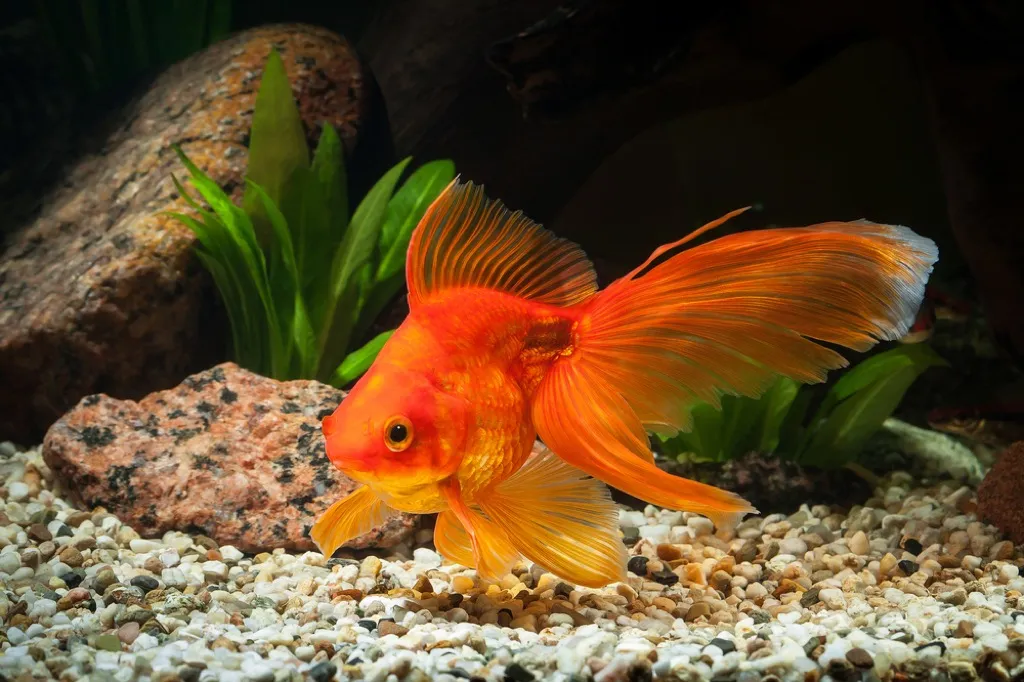
Do friends tell you that you have “the memory of a goldfish?” Well, it’s not as mean as you may think. Goldfish have conditional memory learning that has proven across multiple studies to last many months. It’s very similar to the way a dog remembers things: dogs don’t know how long you’ve been gone when you return home; they only know how to behave when you’ve returned home.
101
3 Musketeers bars once came in three flavors.
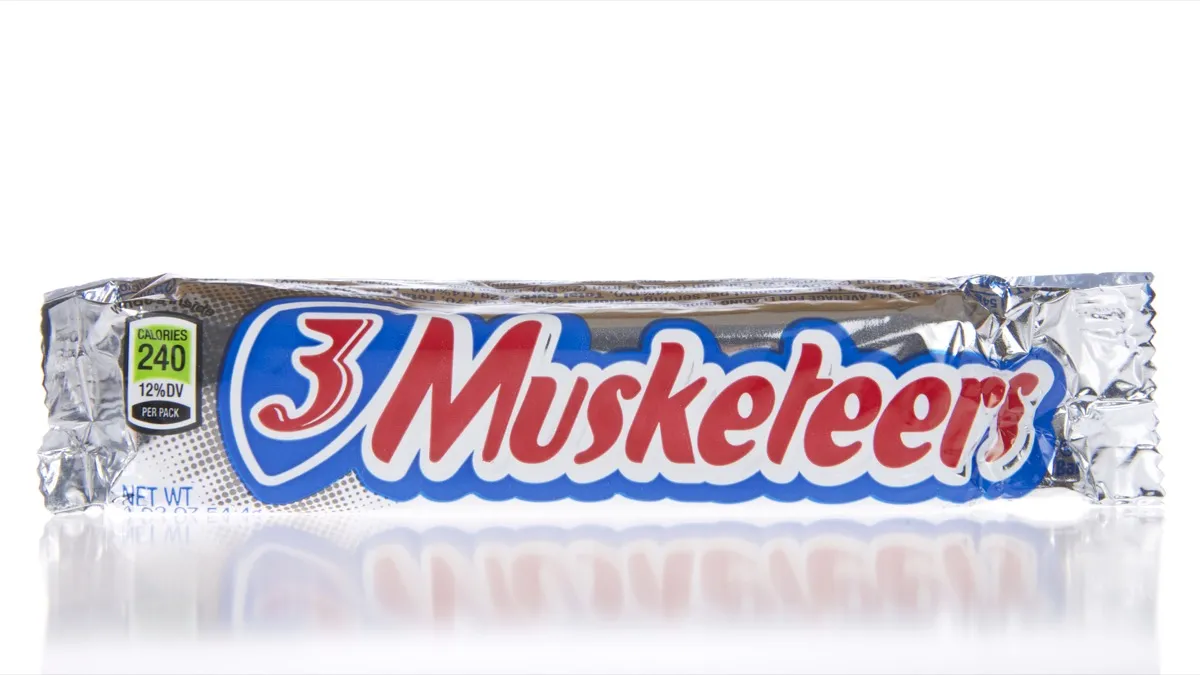
If you never understood where the name came from, now it can finally make sense: the bars, when created in 1932, were sold in packs of three, each with a different nougat flavor: vanilla, chocolate, strawberry. During the sugar rations in World War II, three-packs became too expensive to produce, so the company cut the retail down to one flavor.
102
New York City has its very own species of ant.
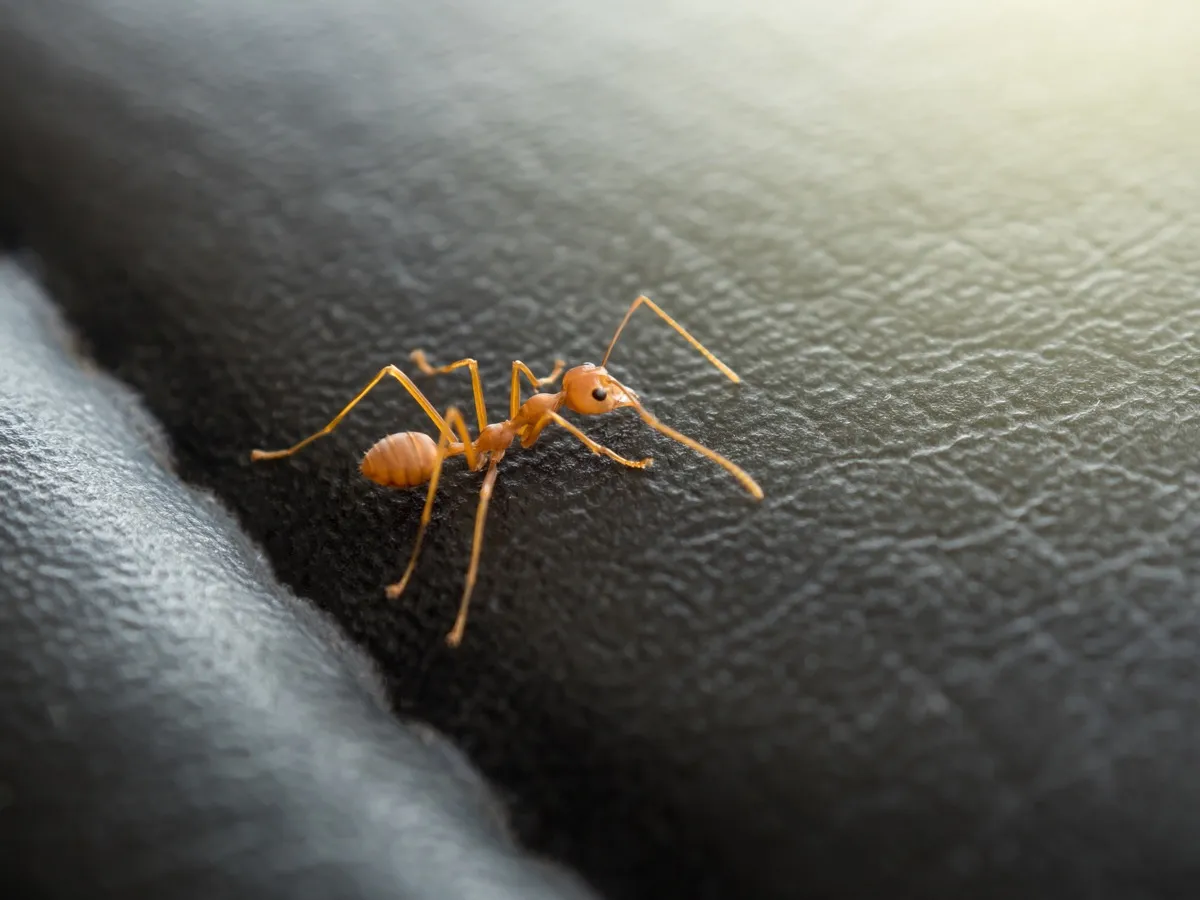
The ManhattAnt is found only within a 14-block strip of New York City, and nowhere else on the planet. It’s similar to a regular cornfield ant, but can’t be matched to any other known ant species. Scientists believe that it evolved thanks to isolation within the concrete jungle—and potentially from an unhealthy diet.
103
Natural disasters are given human names because of political views.

The original meteorologist to begin naming them, Clement Wragge, named hurricanes after politicians he didn’t like, so that he could say things like they’re “causing great distress,” “wreaking havoc,” and “wandering aimlessly.” So, uh, who would you name a hurricane after?
104
The U.S. Navy uses Xbox 360 controllers.

Xbox 360 controllers are lighter, more intuitive, and overall just easier to use when operating the periscopes on submarines, unlike the complex, helicopter-style control sticks previously used. Also, the game console controllers sell for around $20, while replacing a submarine industry standard controller can run nearly $40,000. All told, swapping to the Xbox controller has reduced training time from hours to mere minutes.
105
Jeanette Rankin became the first female member of U.S. Congress in 1916.

Notice anything interesting about that year? It is a bit ironic because 1916 was four years before women were even given the right to vote. Though, it should be noted that Rankin was a prominent leader of the women’s suffrage movement. Her home state of Montana granted women the right to vote in 1914, six years before it would be legal federally.
106
Charlie Chaplin once entered a Charlie Chaplin look-alike competition—and lost.
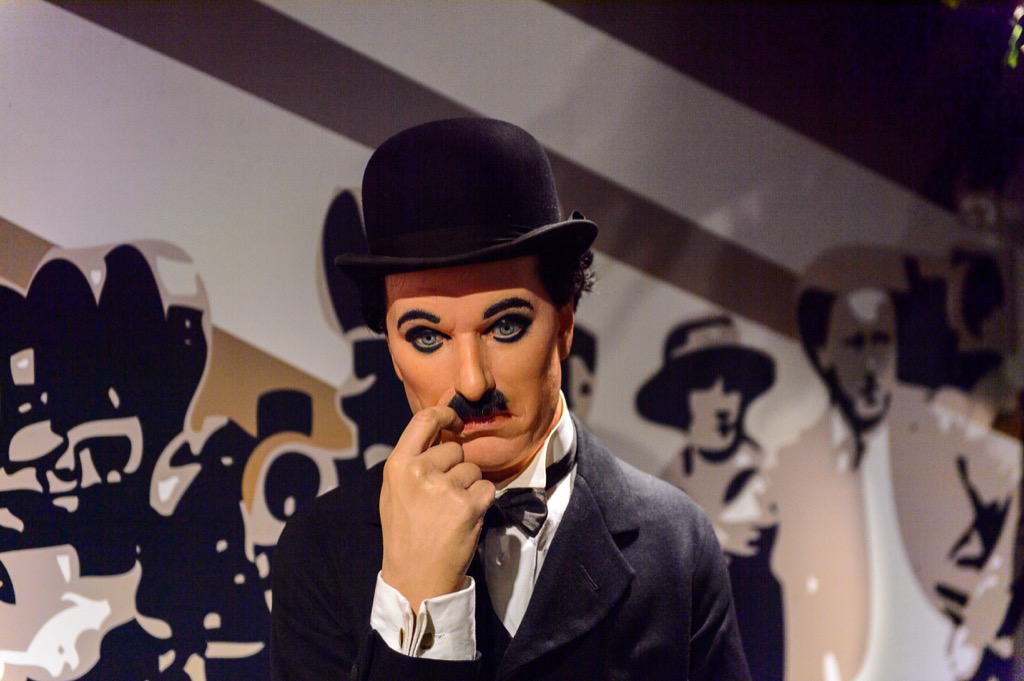
In 1975, a few years before he passed away, Charlie Chaplin entered a look-alike contest in France. He came in third, not first. A theory as to why he didn’t win is that he has blue eyes that couldn’t be seen in black and white, so the judges didn’t recognize him. Whatever the case, though, he was apparently a good sport about being bested.
107
The leaning Tower of Pisa has always leaned.

It’s not like this famed structure slouched to the right over time. Construction for the tower began in 1173, and, because of the soft ground it was built on, began to lean as soon as builders got to the third story, five years after construction started. Over the next 800 years, leaning wasn’t the only thing off about the tower: It’s also sinking at a rate of two millimeters per year.
108
Thomas Jefferson and John Adams died within hours of each other.
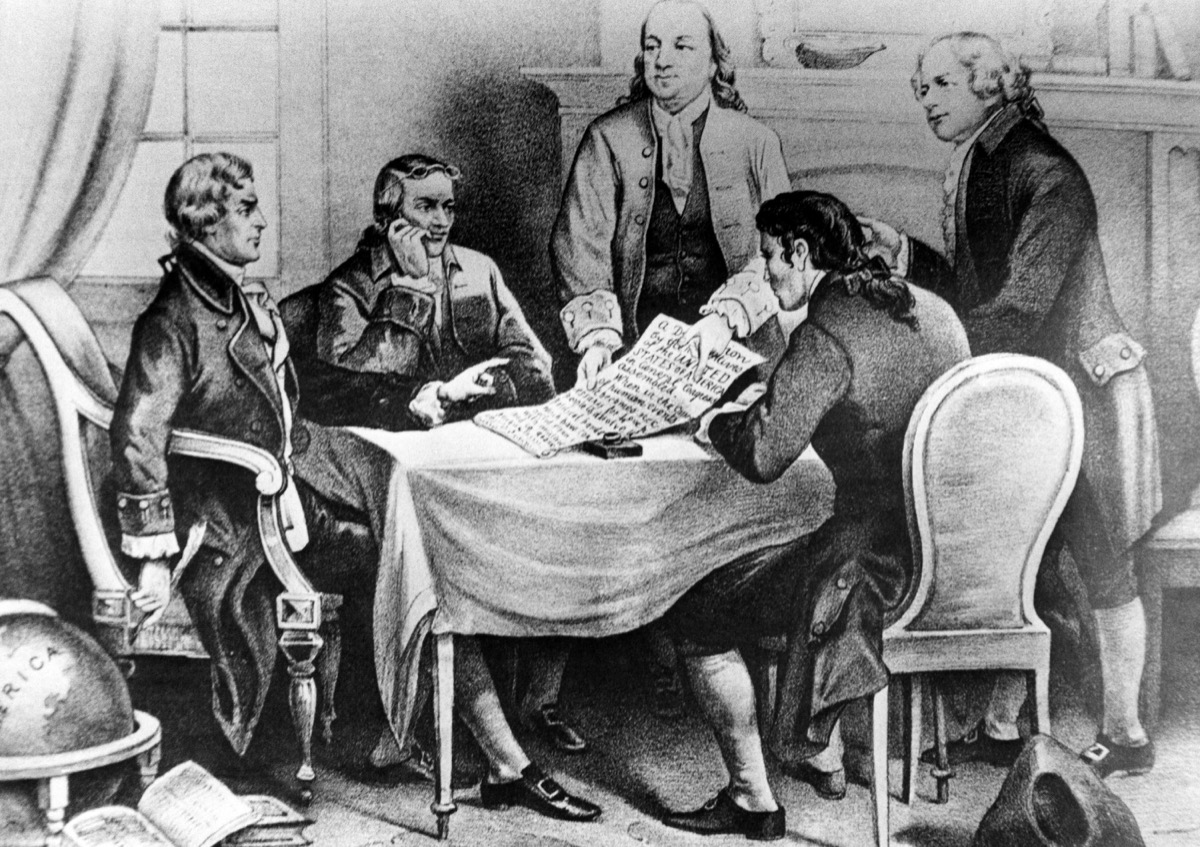
On July 4th, 1826, both former presidents John Adams and Thomas Jefferson passed away. Fellow patriots turned adversaries, they were also the last surviving members of the original American revolutionaries. Plus, did you notice the date? That would be the 50th anniversary of American independence, which seems rather symbolic.
109
William Henry Harrison served the shortest presidential term in U.S. history.
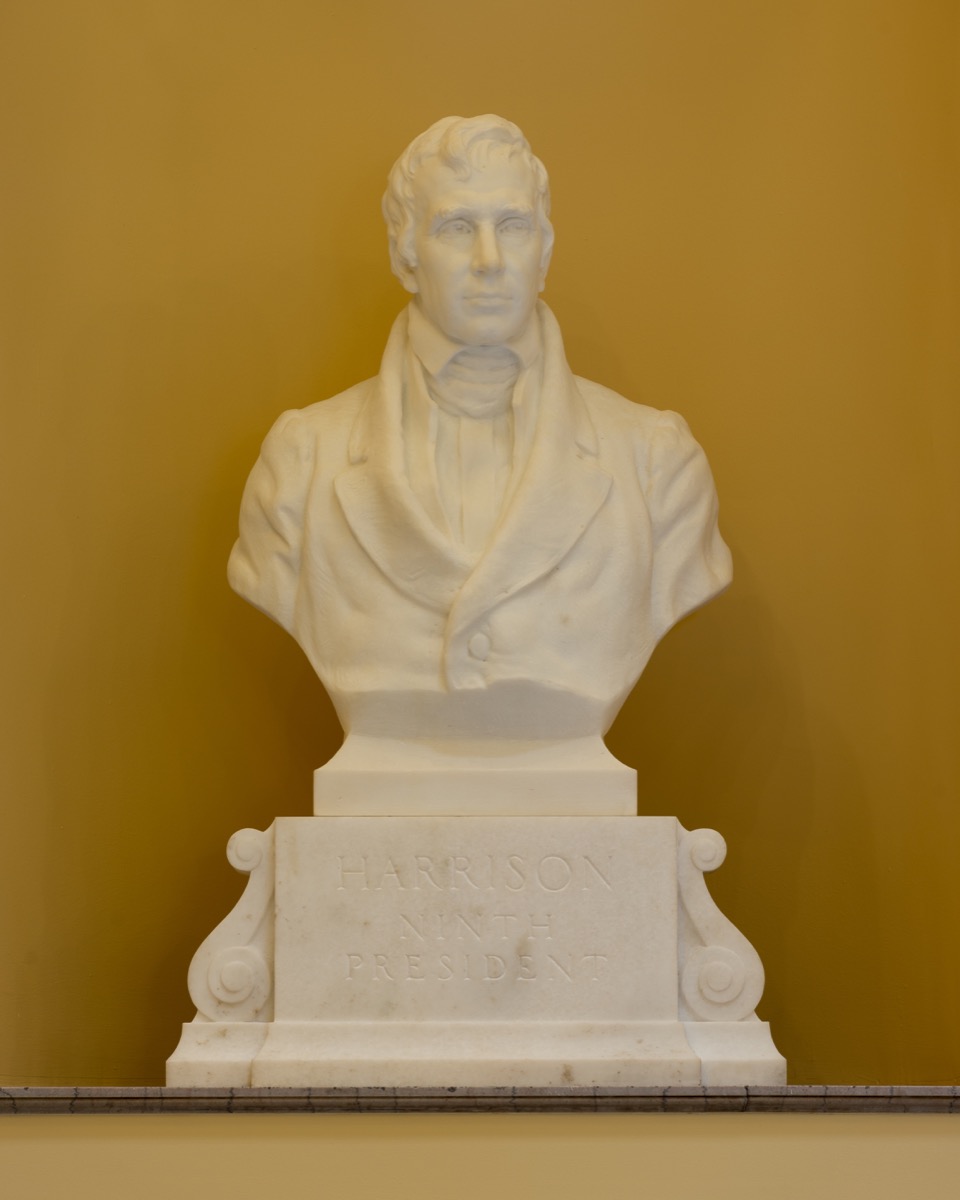
He was America’s ninth president and served just a single month—from March 4th 1841, to April 4th, 1841—before dying of pneumonia, which makes him the shortest-serving U.S. president in history. President William Harrison was succeeded by his vice president, John Tyler, who earned the nickname “His Accidency.”
110
Paul Revere never actually shouted, “The British are coming!”
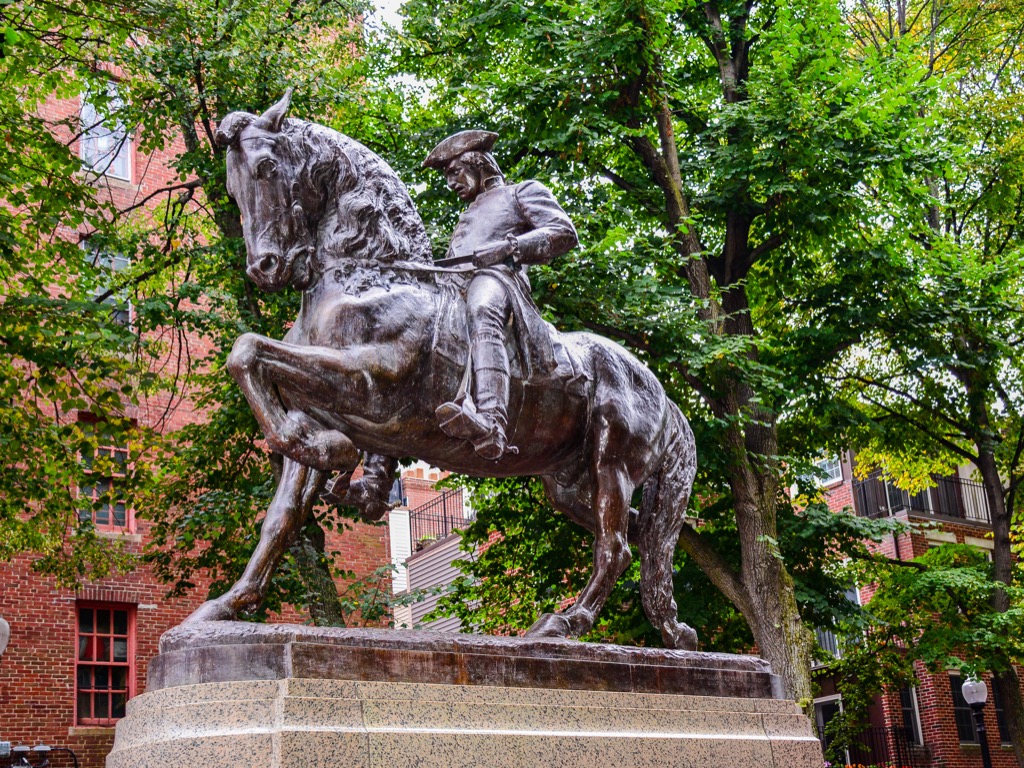
While everyone knows the story of Paul Revere‘s famous ride, in which he was said to have warned colonial militia of the approaching enemy by yelling “The British are coming!” But that never happened. The operation was meant to be quiet and stealthy, since British troops were hiding out in the Massachusetts countryside. Also, at the time, many Colonial Americans still considered themselves to be British.
111
The first fax machine was patented in 1843.
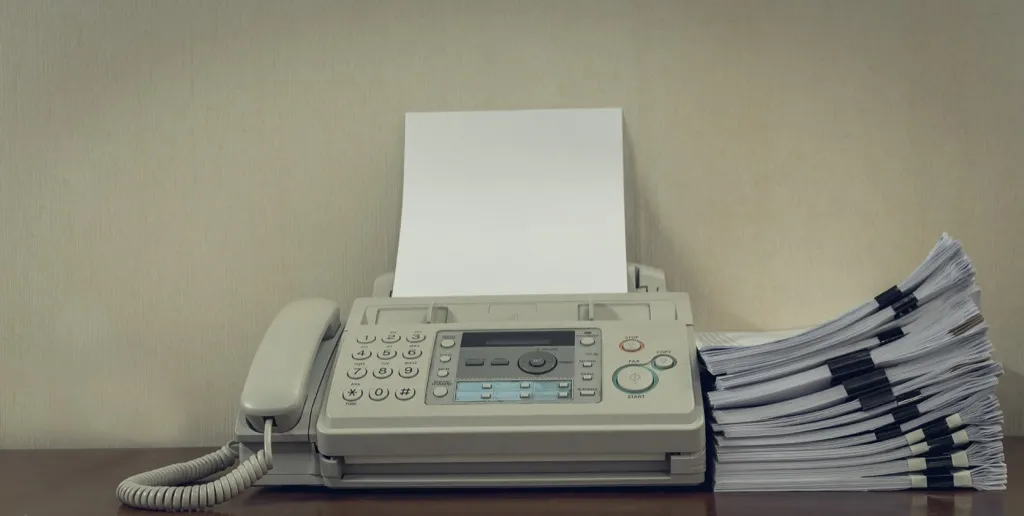
The same year the Oregon Trail began, the fax machine was patented by Scottish inventor Alexander Bain. Then, three years later, in 1846, he actually created it. At the time, it was not referred to as a fax machine, but a facsimile machine. He used a clock to synchronize the movement of two pendulums, which would then scan each line of the message during that process.
112
The Beatles were turned down before making it big.
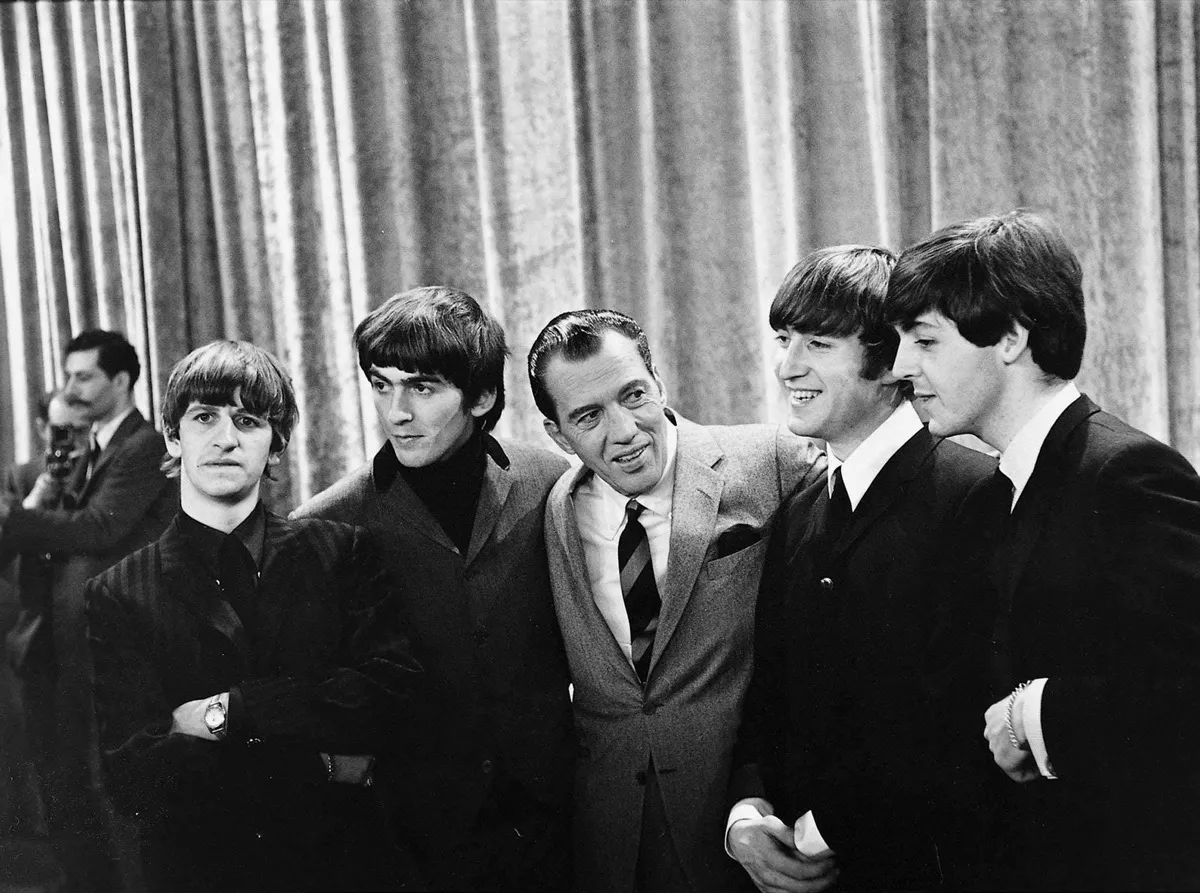
You might think that the minute anyone heard The Beatles perform, their talent and allure would be immediately recognized and awarded. Well, not exactly: the Liverpool band were actually turned down by Decca Records after an audition on January 1st, 1962. Producer Dick Rowe was apparently unimpressed with the Fab Four. However, five months later, The Beatles were signed by George Martin at Parlophone—and the rest is history.
113
There were hundreds of plots against Fidel Castro.

And you thought you had enemies. Per reporting by the BBC, Fidel Castro, the former Cuban dictator, had more than 600 plots against him during his regime. Most were plots against his life, but some—like the idea to spike him with LSD right before he went on radio, she’d sound nuts—were meant only to destabilize his rule.
114
A best-seller was once written by a nine-year-old.
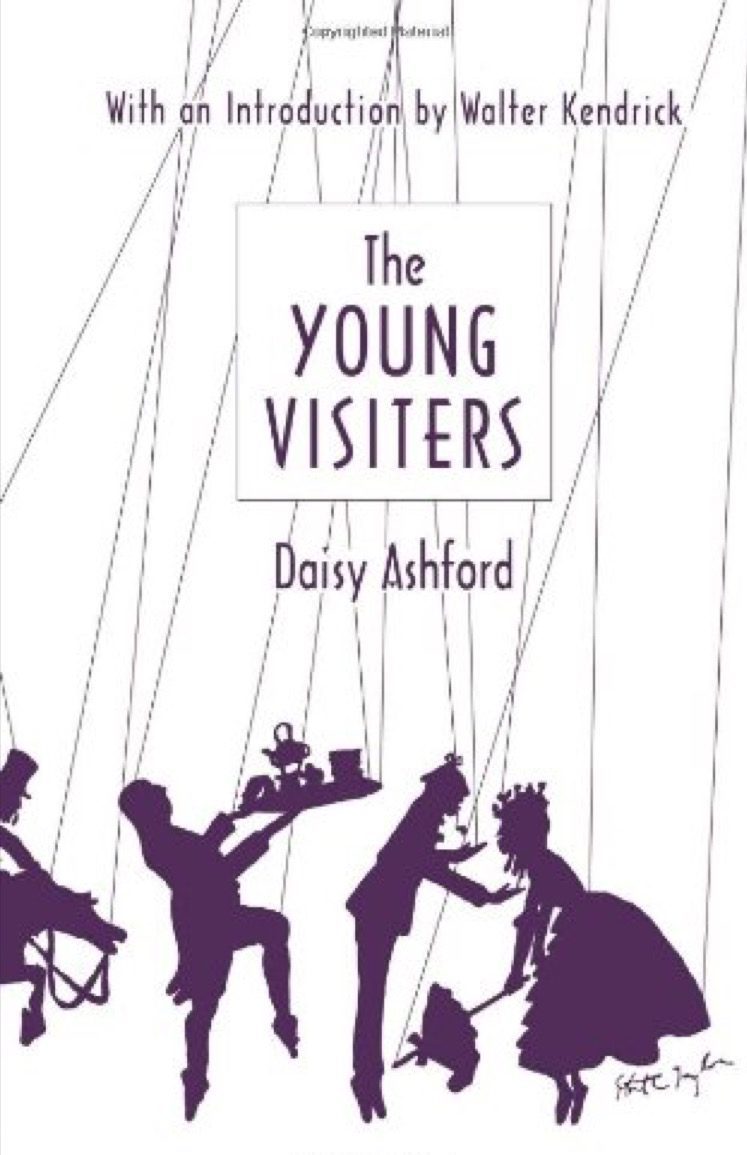
Talk about impressive. In 1890, nine-year-old Daisy Ashford wrote a novel that she then proceeded to forget about. She stopped writing fiction altogether at 13. Around 28 years later, after her mother passed away, Ashford and her sisters found the manuscript in a drawer. Long story short, the novel (The Young Visitors) was picked up by a publisher and went on to become a bestseller.
115
King Tut’s parents were siblings.

King Tut took the throne of Egypt at age nine and ruled for 10 years as pharaoh until his death at 19 around 1324 B.C. DNA tests from 2010 revealed that the king’s parents were actually related—like, as in brother and sister. Apparently, that runs in the family: King Tut’s wife was also his half-sister. They had two daughters, but both were born stillborn.
116
Napoleon once lost a battle to a horde of bunnies
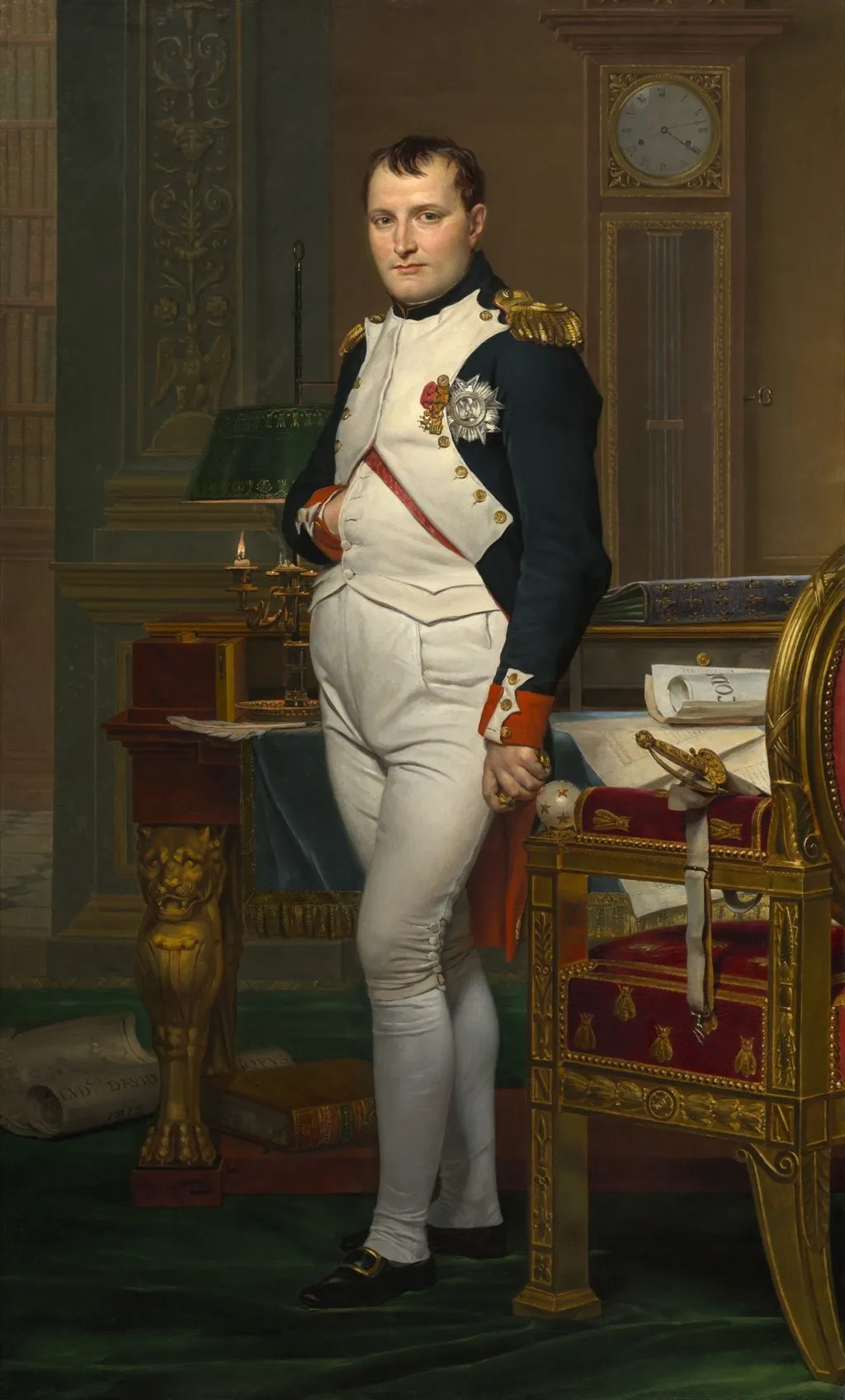
Once upon a time, the famous conqueror Napoleon Bonaparte was attacked by … bunnies. The emperor had requested that a rabbit hunt be arranged for himself and his men. His chief of staff set it up and had men round up reportedly 3,000 rabbits for the occasion. When the rabbits were released from their cages, the hunt was ready to go. At least that was the plan! But the bunnies charged toward Bonaparte and his men in a viscous and unstoppable onslaught. And we were taught that Waterloo was the conqueror’s greatest defeat.
117
Cold cuts are safer when they’re hot.

The Centers for Disease Control and Prevention (CDC) recommends that seniors, pregnant women, and those with weak immune systems avoid lunch meats, hot dogs, and deli meats unless they are heated to at least 165 degrees Fahrenheit. This kills the food-borne bug listeria monocytogenes, which infects 1,600 people and kills 260 in the United States annually. Hot bologna? We’ll run the risk of listeria, thanks.
118
Albert Einstein was offered the Israeli presidency
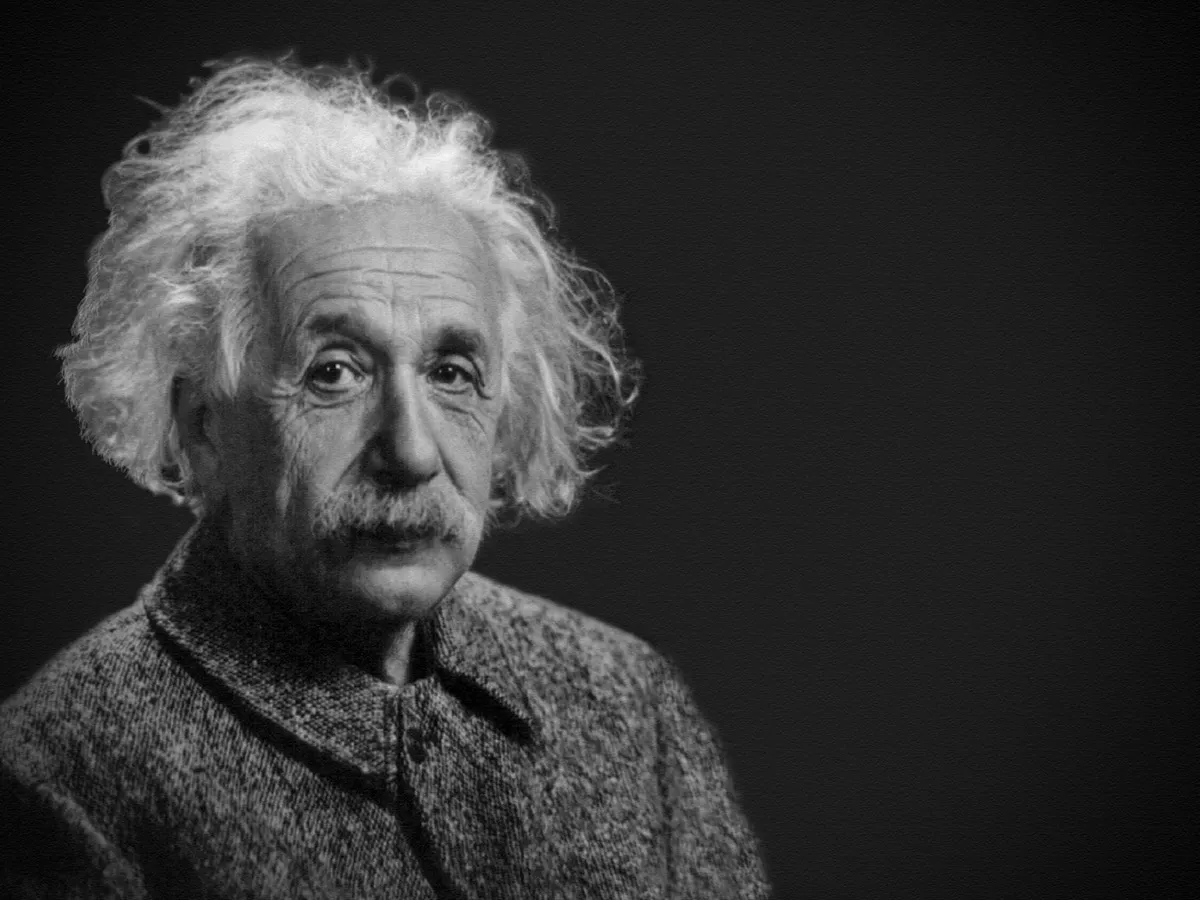
After the first Israeli president Chaim Weizmann died on November 9, 1952, the Foreign Ministry was tasked with the challenge of finding candidates for his replacement. Israel’s ambassador to the United States, Aba Eban, approached Albert Einstein to see if he was interested in becoming president of Israel. While Einstein did say he was “deeply moved” to have been given the offer, he could not accept because he felt he lacked the experience necessary.
119
Ronald Reagan was an excellent lifeguard.

Say what you will about his policies and legacy, but Ronald Reagan was quite a stellar lifeguard. At Lowell Park beach, the Great Communicator reportedly pulled 77 people from the water during his time as a lifeguard there.
120
Peter the Great imposed a beard tax.

Peter the Great, Russia’s revolutionary czar, once declared imposed an annual beard tax on members of society whom had facial hair. If someone wanted to keep their facial hair, they simply had to pay for it. After they made their deposit, they received a coin that said “tax paid.” We’re guessing Movember wasn’t en vogue at the time